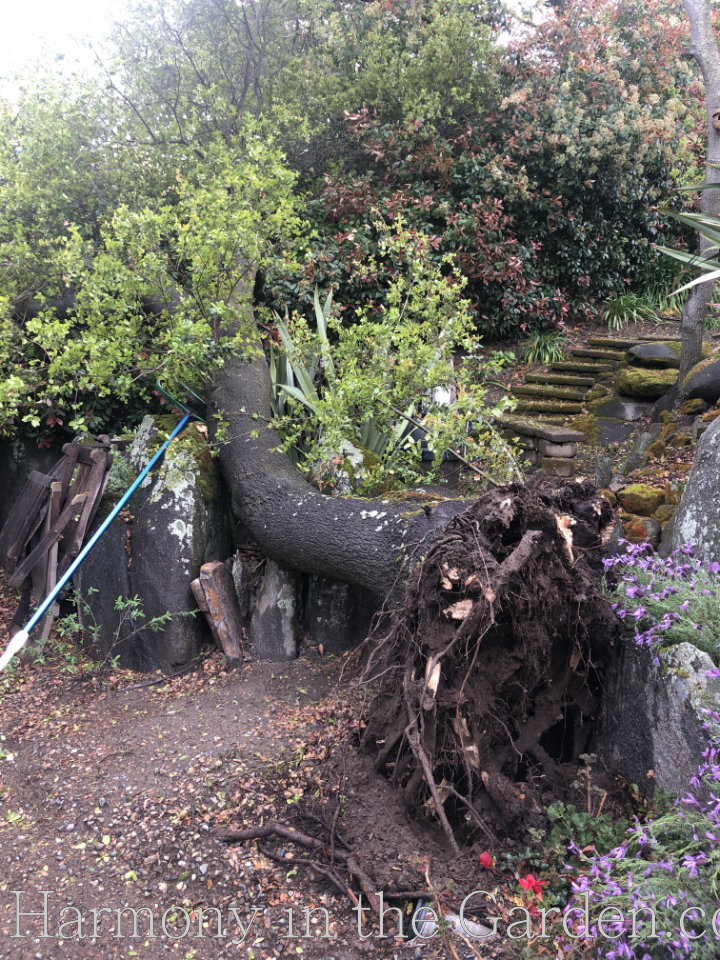
Today I’m sharing garden inspiration using dead trees and branches, because if you garden long enough, loss is inevitable.
What do you do when a beloved tree gives up the ghost? Or when several trees must be removed to make way for a new home or garden?
Or when you come home from vacation to find a giant oak tree toppled out of the blue (yes, that happened to me, twice so far this summer!)
As painful as these moments are, they can also open the door to unexpected beauty in the garden.
If you’re like most gardeners, you’ve probably shed a tear or two when this has happened in your garden.
I’ve been going through photos of gardens I’ve visited over the years and was amazed at how many of them incorporate, on some level, their own fallen trees. Basically turning lemons into lemonade.
And while none of my own felled trees could be transformed into anything but mulch (which I’m grateful for), I wanted to share what others have done when faced with similar dilemmas.
What to Do With a Dead Tree in the Garden
1. Use the trunk as a decorative support
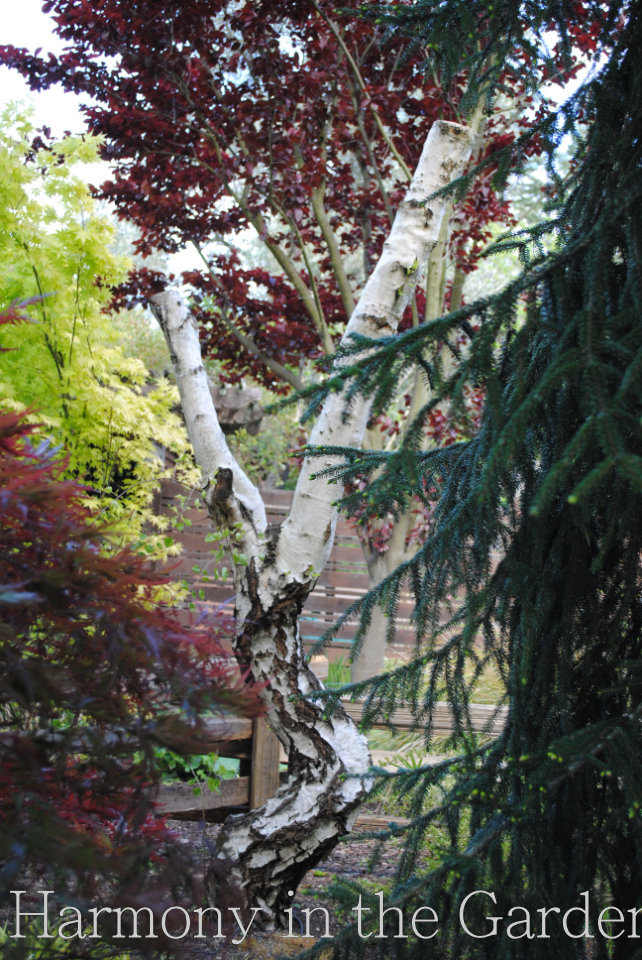
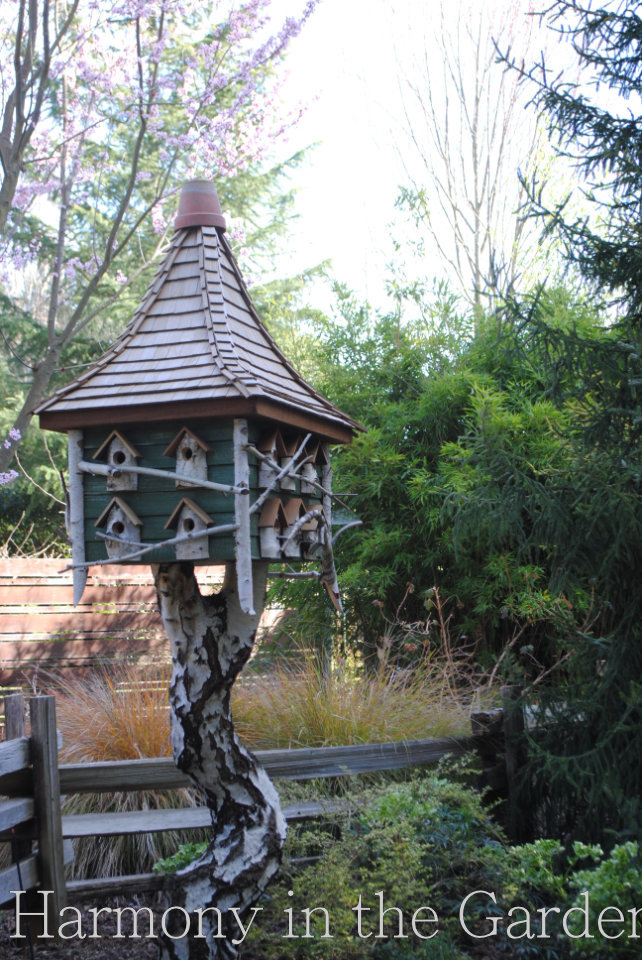
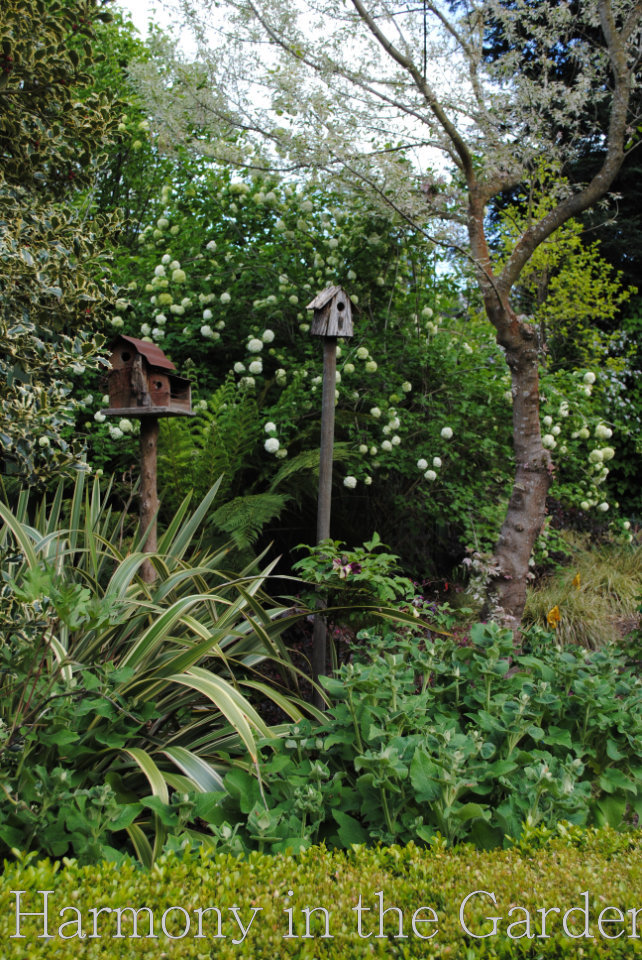
One of my favorite uses of a dead birch tree (above) is how Freeland Tanner transformed the sculptural tree trunk into a support for one of his custom birdhouses.
We should all be so lucky to have such a picturesque tree trunk, right?
But his birdhouses to the left prove that simple branches can also be charming in the garden.
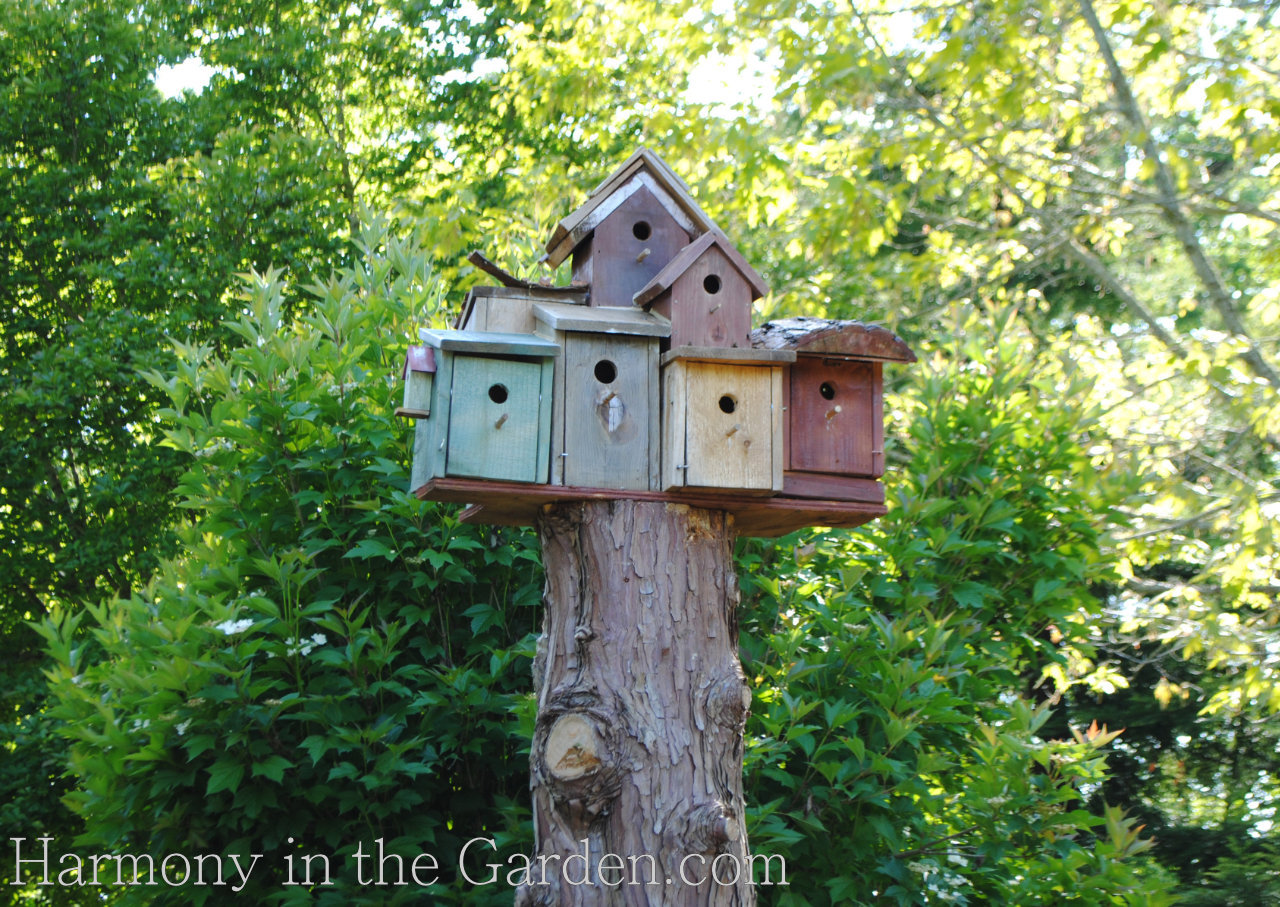
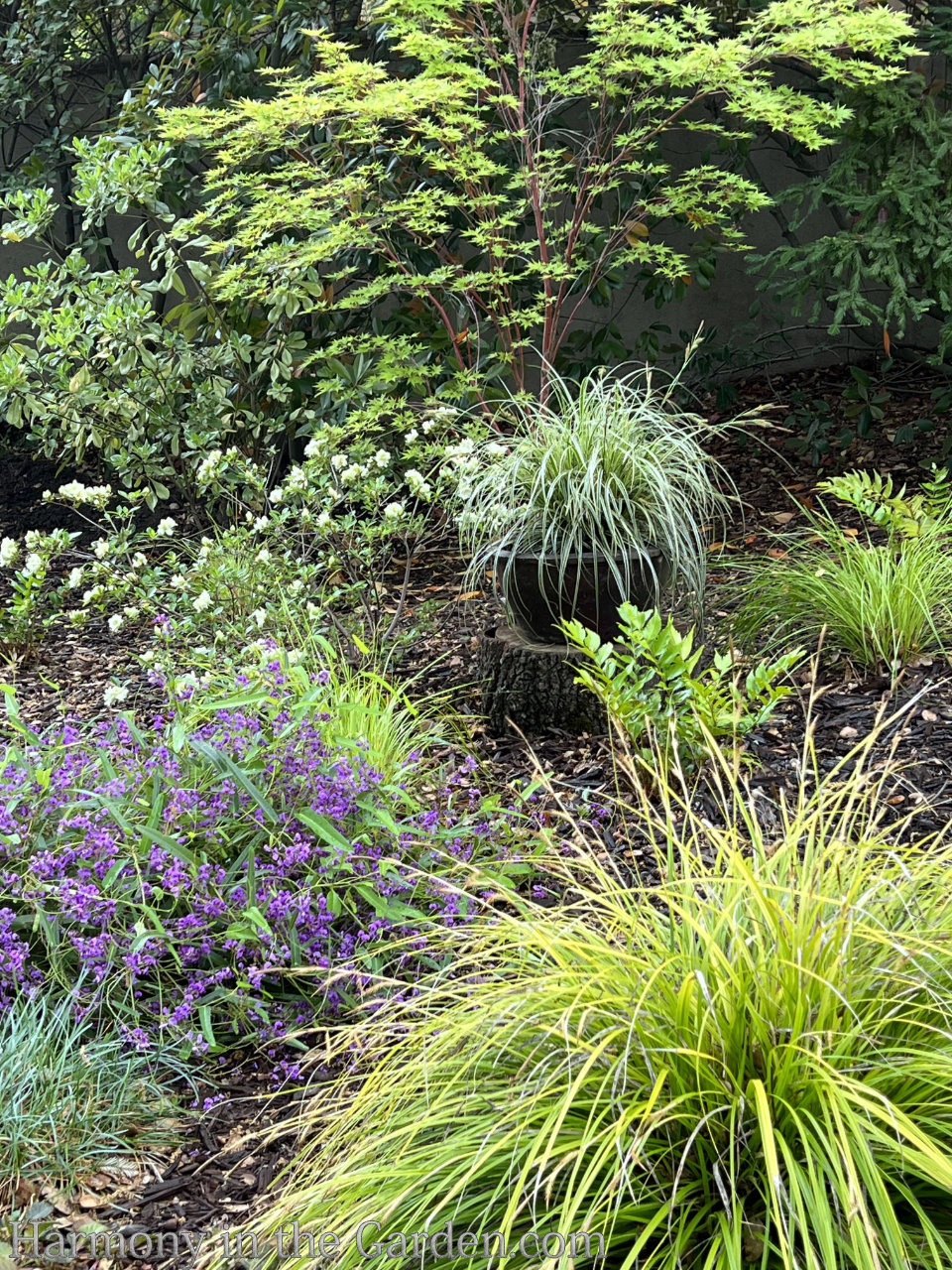
Just last year we lost yet another beloved oak tree. It killed me to have it removed!
Since I always like to place a few containers within garden beds, I thought why not use these rounds as pedestals!
Placing containers in the middle of garden beds adds another element of interest, not to mention height, and an opportunity to honor a favorite tree.
Also, placing them within the garden means it’s much easier to hook them up to irrigation (tapping into existing nearby lines.)
Sure, they won’t last forever, but I’ll certainly get several years out of them.
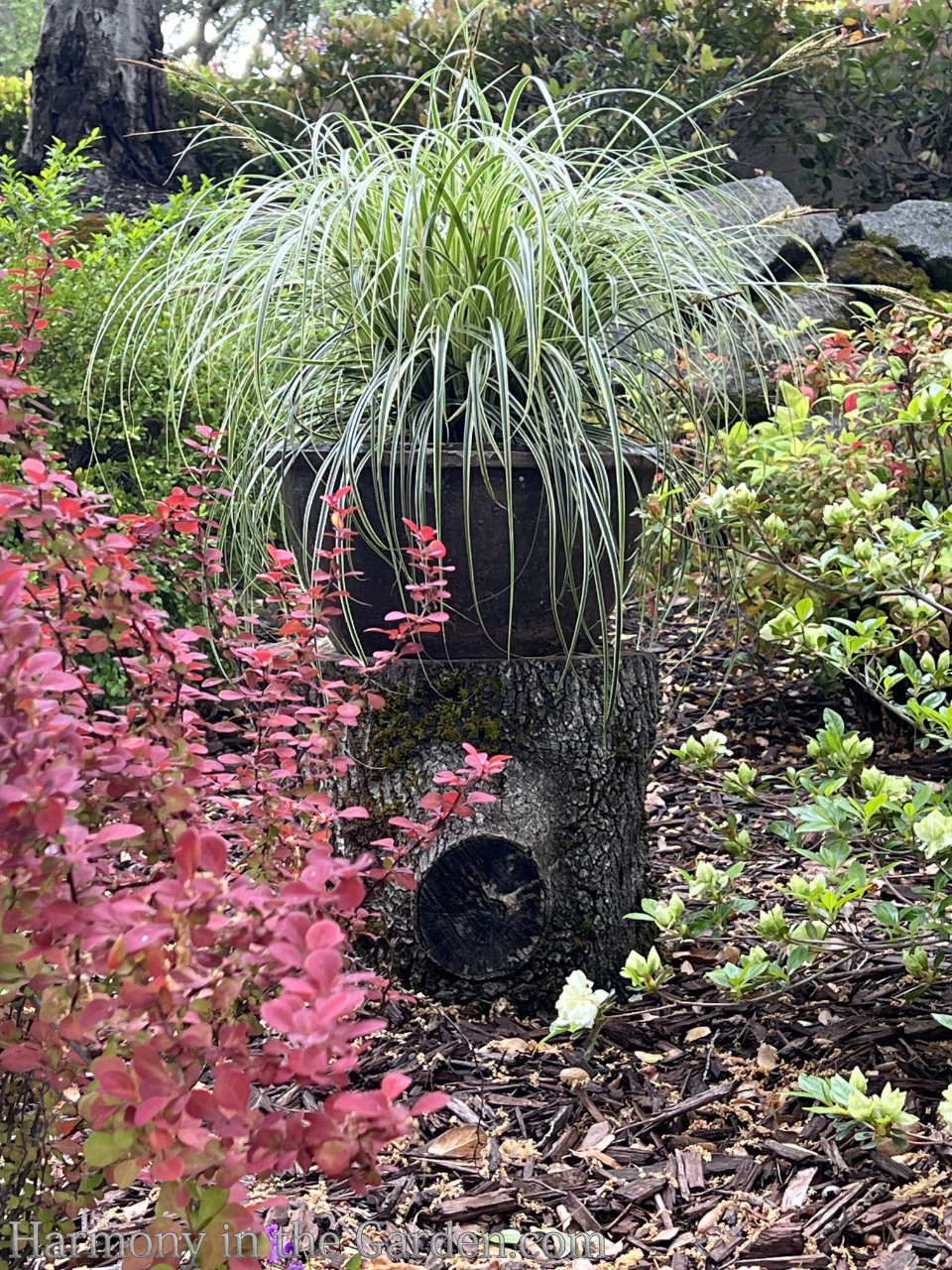
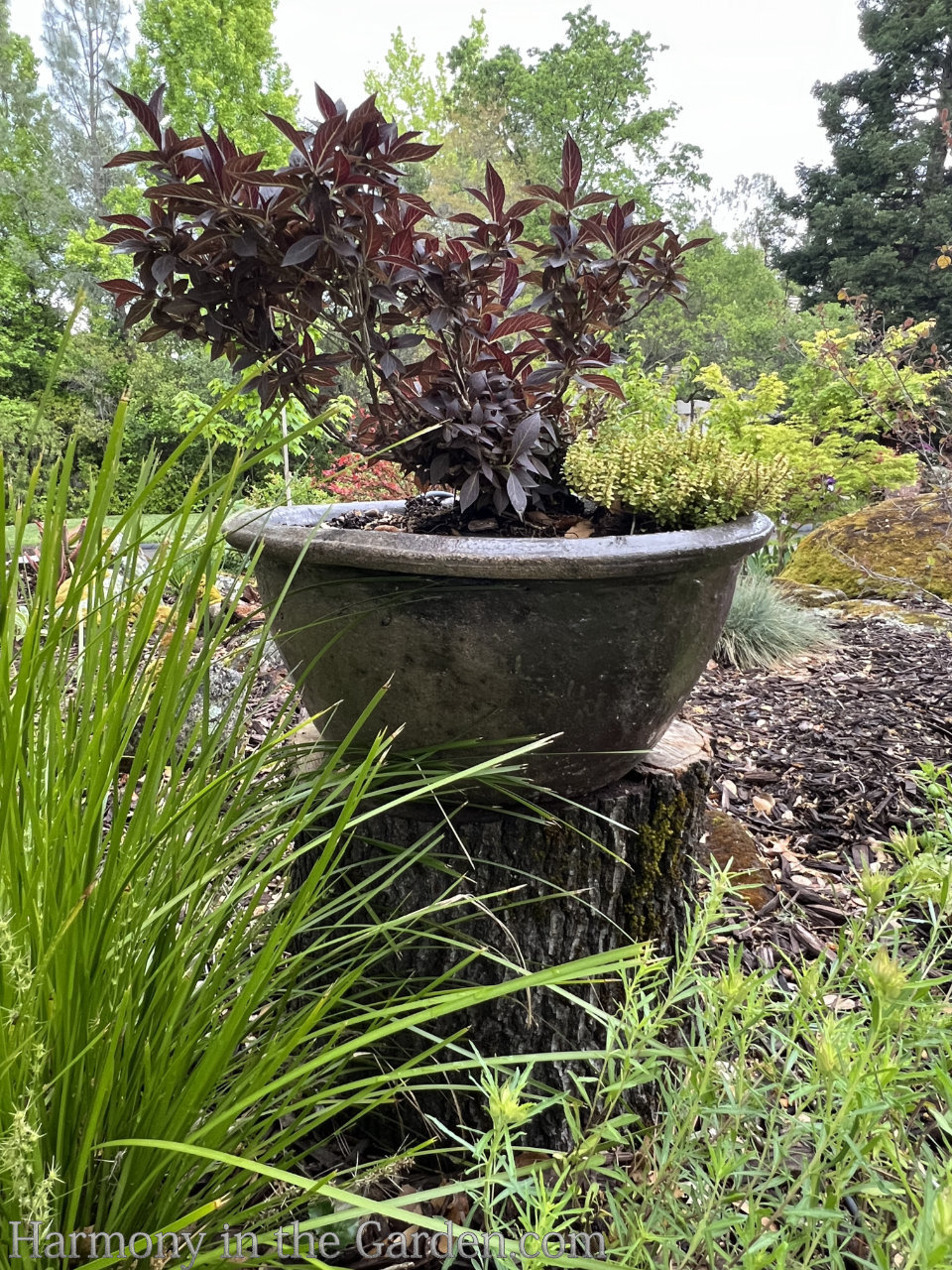

This WAS my wonderful, old ‘Roger’s Red’ grapevine that up and died one summer.
While technically not a TREE, it’s thick and gnarled trunk was so sculptural I couldn’t bear to remove it.
I ended up using it as a support for an ‘Amethyst Falls’ wisteria. I think the hawk appreciated the support, too!

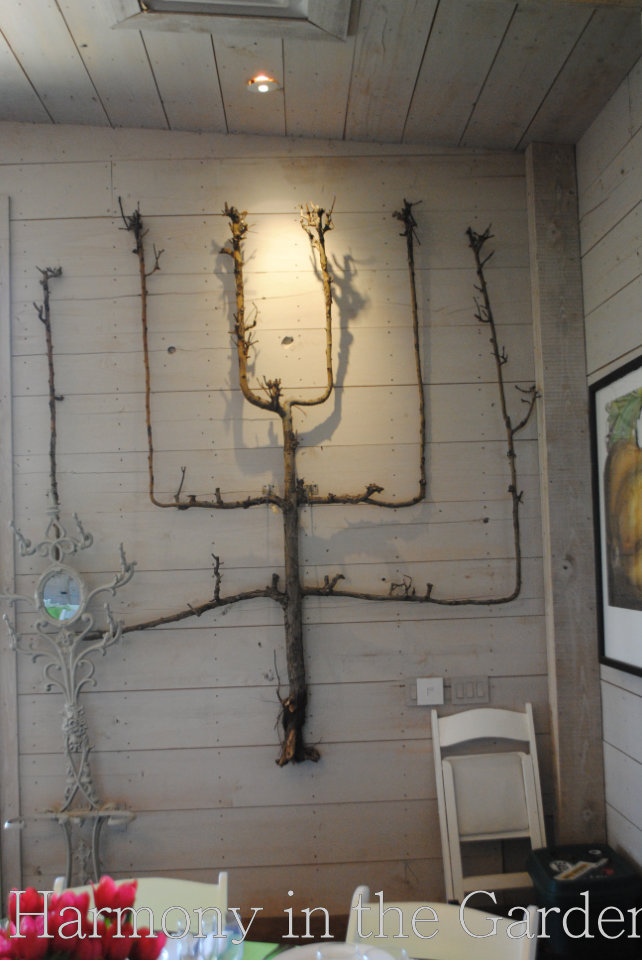
And speaking of grape vine trunks, take a look at how P. Allen Smith, transformed his dead espallier into wall sculpture!
Or, how he used a simple tree trunk to support his black rooster sculpture.
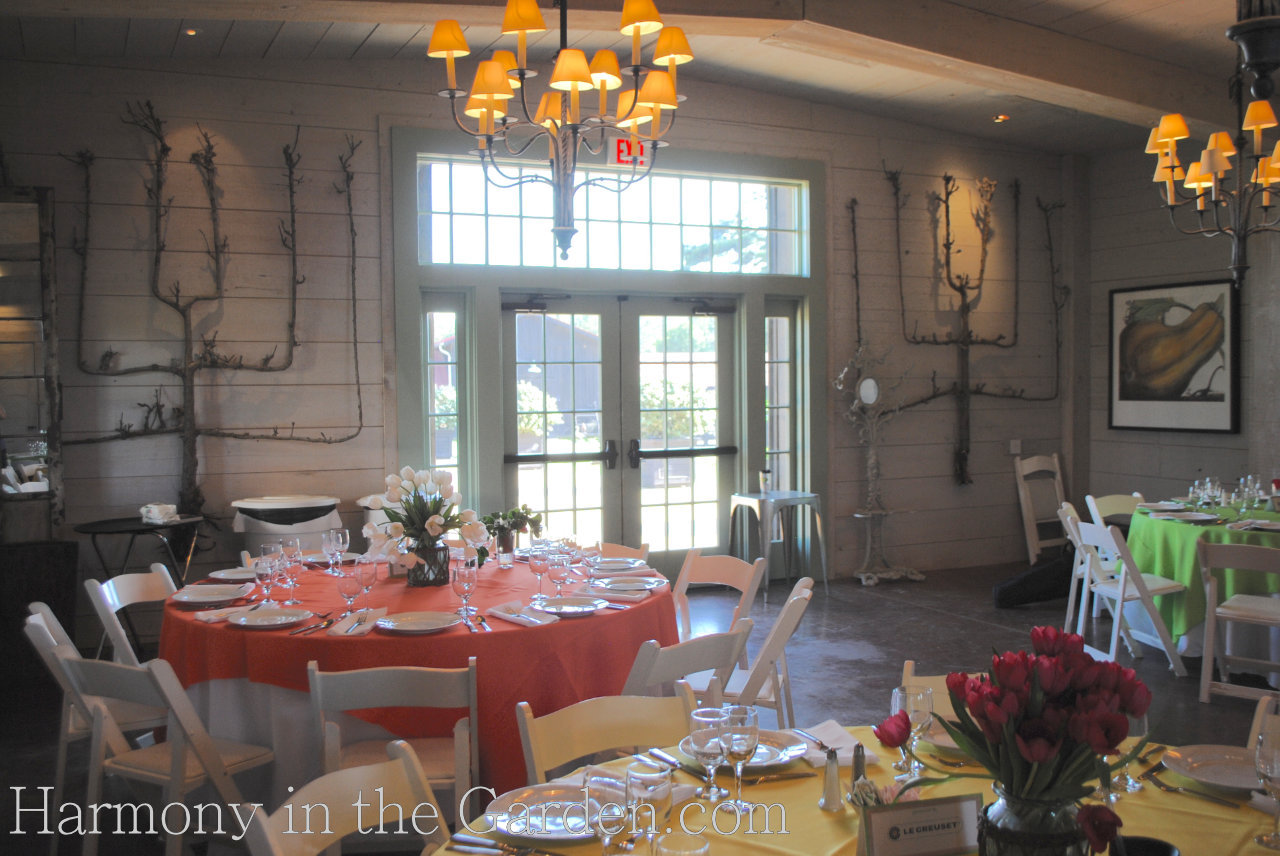
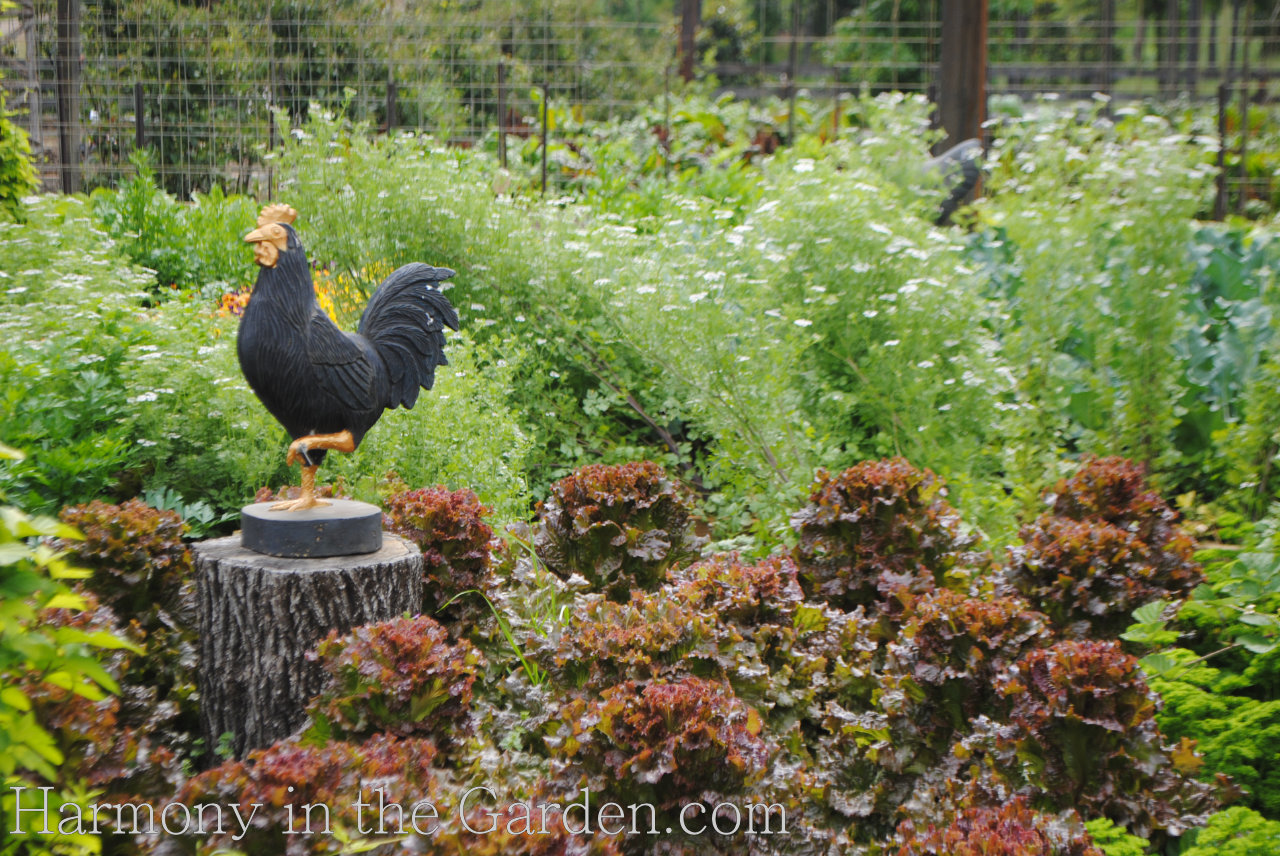
2. Artistically cut and stack the wood

Remember my post about Lani Freymiller’s monochromatic garden?
Well, what I didn’t write about was the fact that when she moved there many years ago, dozens of trees had to be removed to make room for their home and garden.
But instead of hauling the dead trees away (I believe they might have been eucalyptus?) she transformed the trunks into this low garden ‘wall’ that winds its way throughout her garden.
The many nooks and crannies of the garden wall is the perfect home for hidden garden art, like these bunnies.


Or, if you have enough cut wood why not make a 6-foot high privacy wall like Lake Tahoe’s Cottage Inn did (below)?
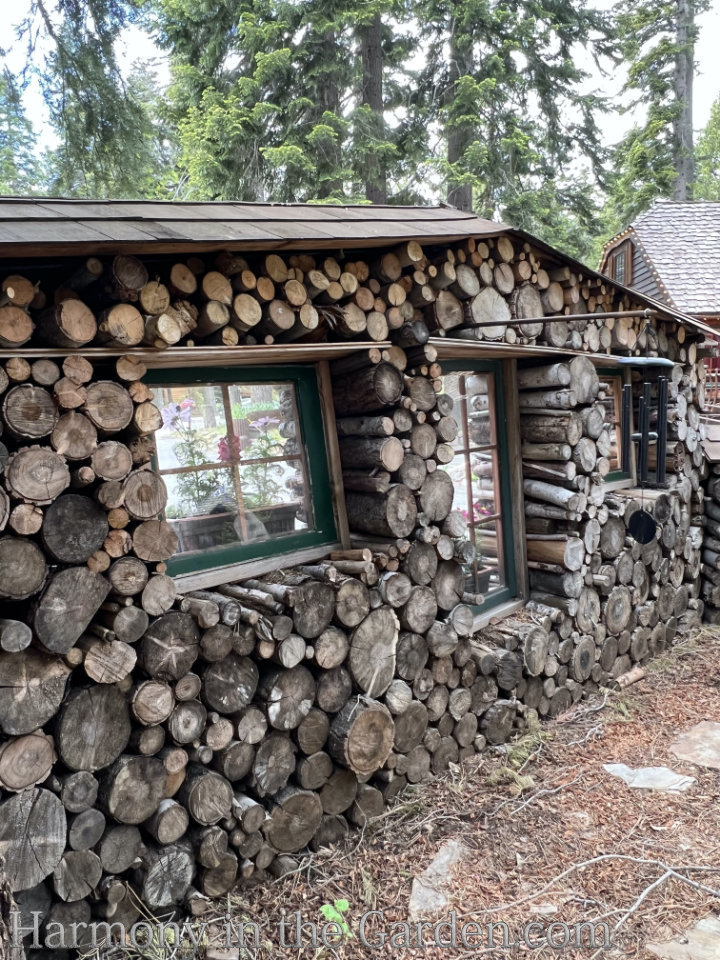
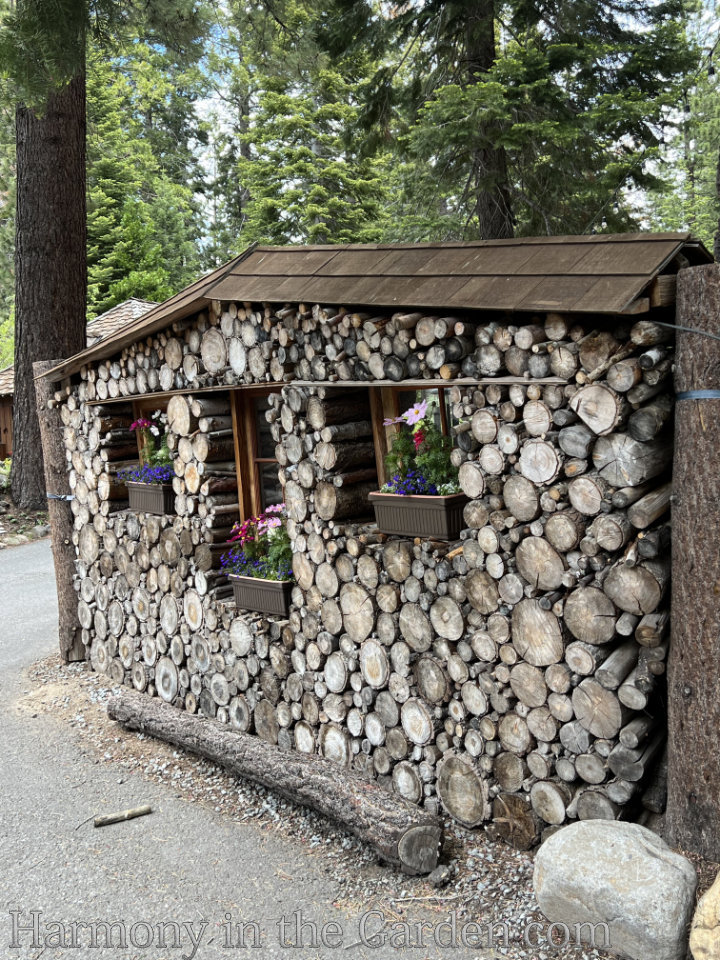
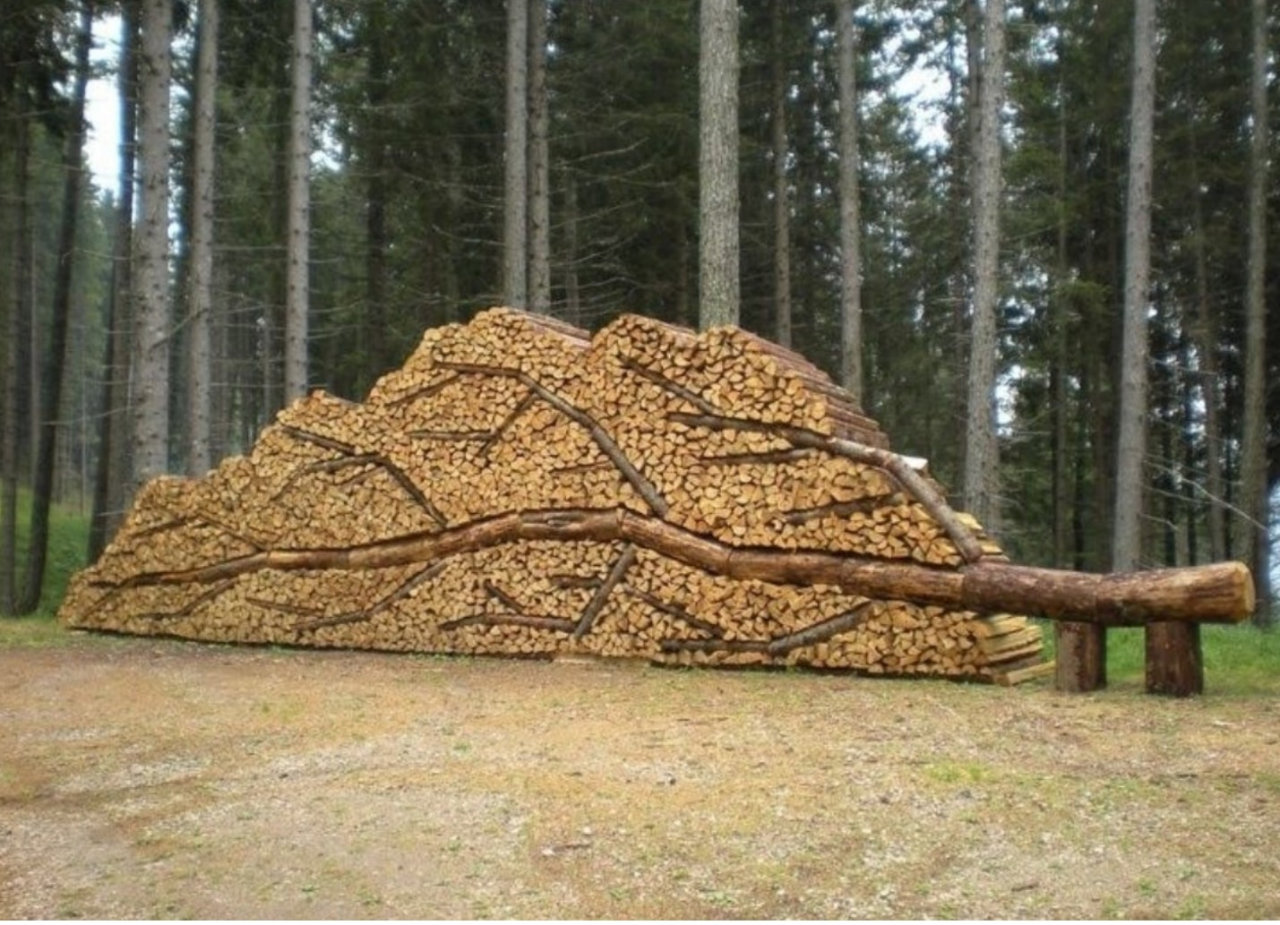
While this photo isn’t from a garden I’ve visited, I just have to share it with you.
Who knew there were people who created such magnificent art from stacking logs! You can see more images here.
3. Transform a dead tree into art
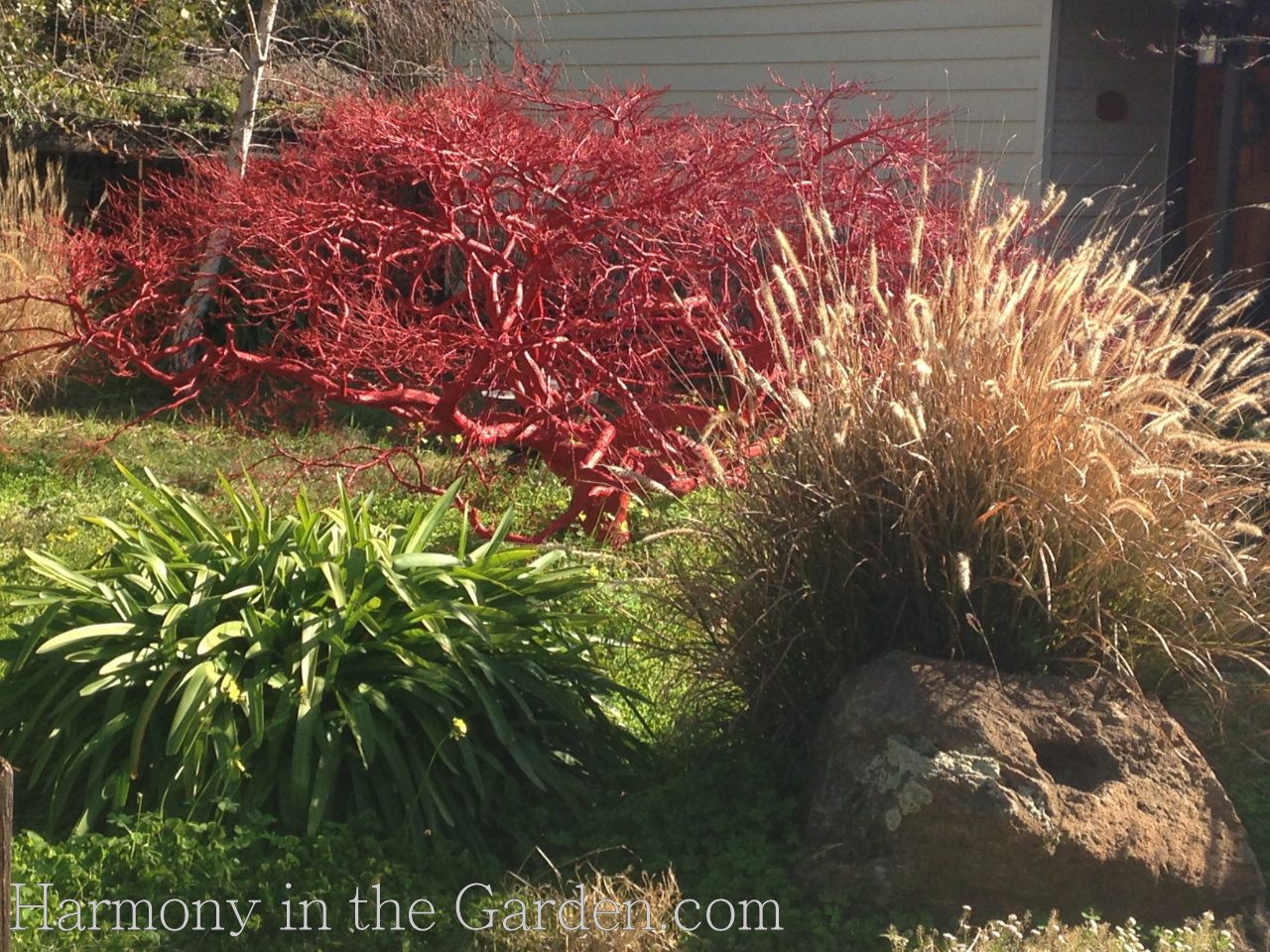
With a single can of spray paint, a neighbor of mine transformed their dead Japanese maple into a year-round work of art.
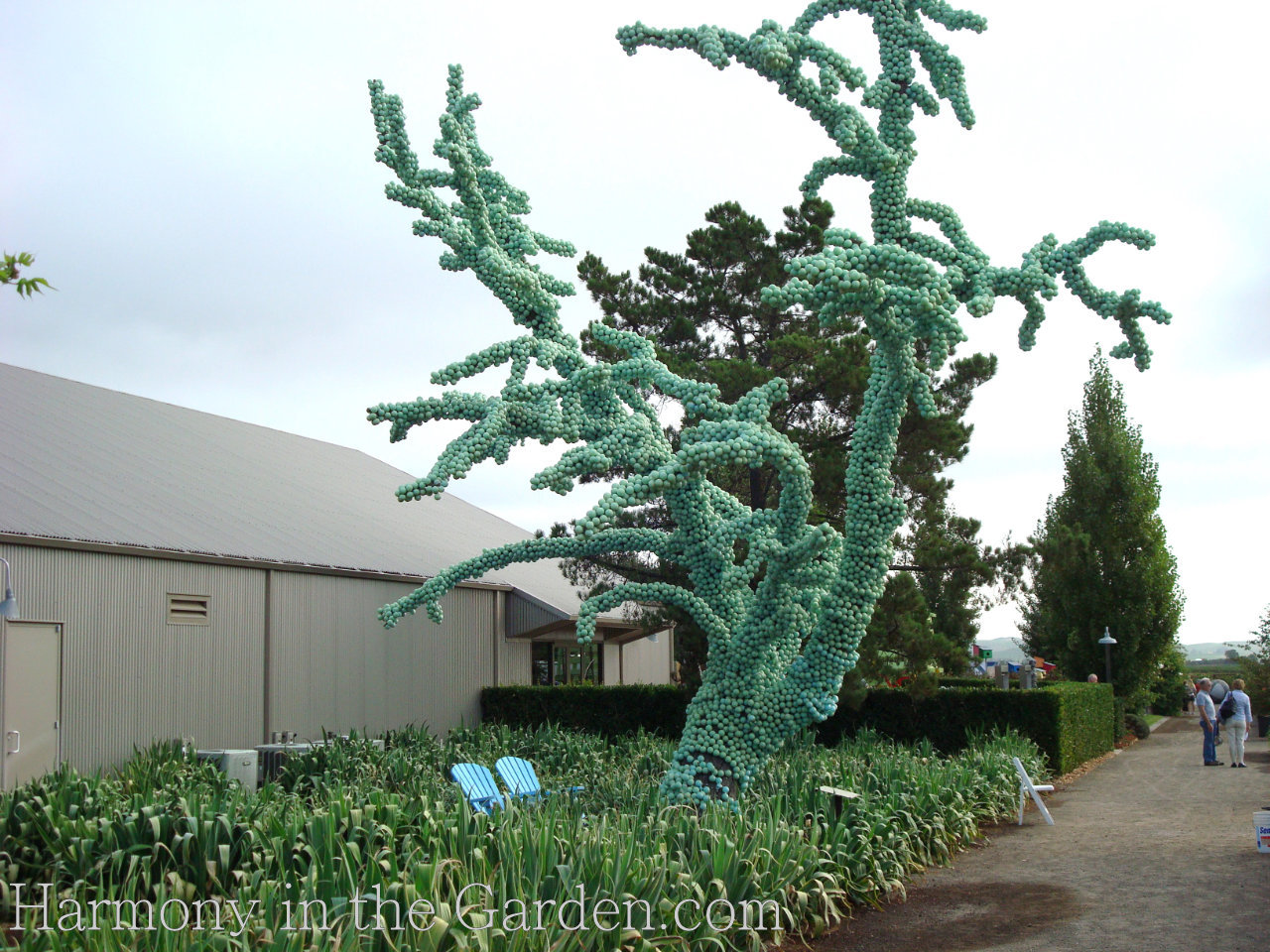
Or, take 17,000 plastic balls and wire them to a dead tree, like Claude Cormier did.
The result is The Blue Tree, found at Sonoma’s Cornerstone Gardens.
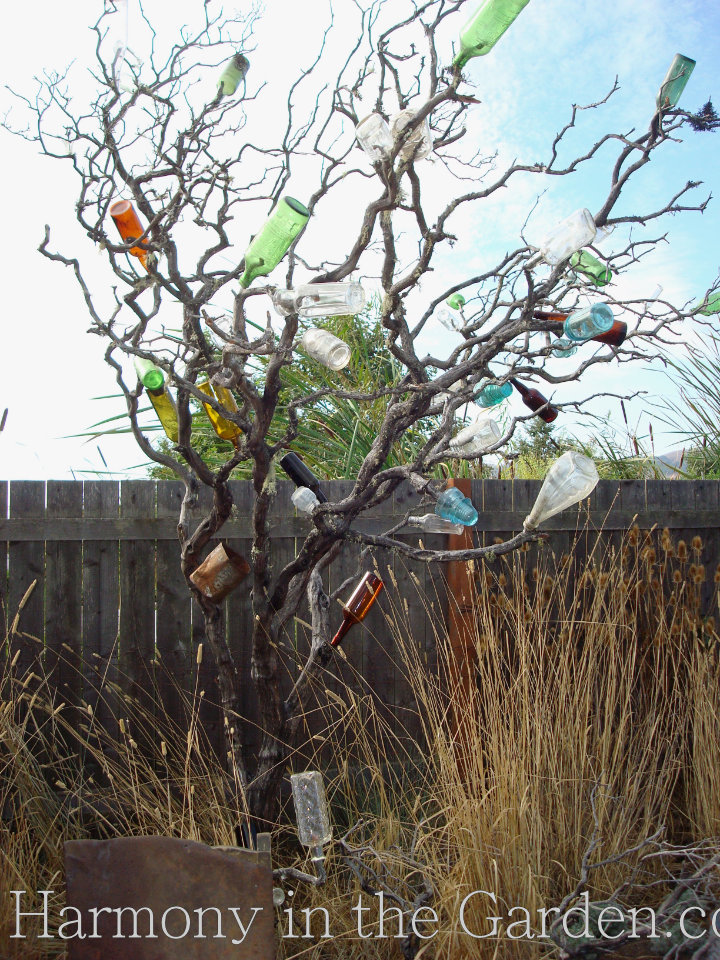
Or, make a bottle tree! What’s a bottle tree?
One interpretation is that the bottles protect the home and garden by catching evil spirits, who are attracted by the bright colors. Once trapped inside, sunlight destroys the spirits.
If you happen to walk by a bottle tree and hear the wind blowing over the bottles, that’s the sound of the raging spirits trapped inside!
This is a bottle tree created by Ben and Kate Frey’s for The Late Show, again featured at Cornerstone Gardens.

I recently took a little trip to Virginia City, Nevada (my favorite ghost town ever!)
Just outside of town I spotted this bottle tree looking pretty amazing with those clouds behind it!
And across the road from this was a a modified version (below) where there’s more shoes hanging on it than bottles – ha!
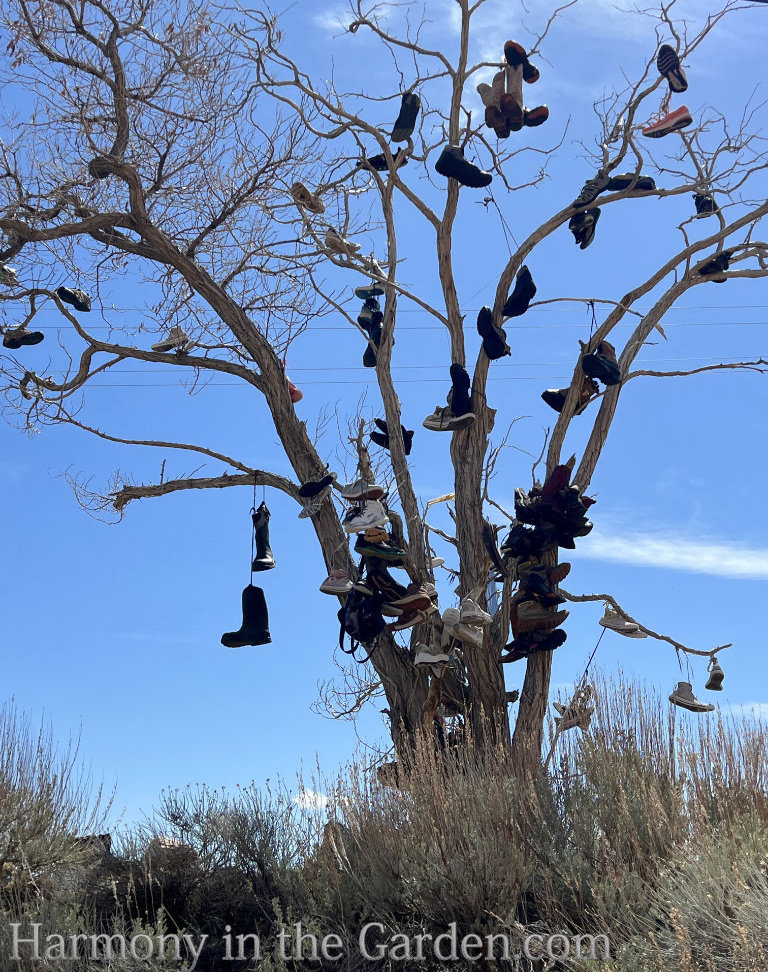
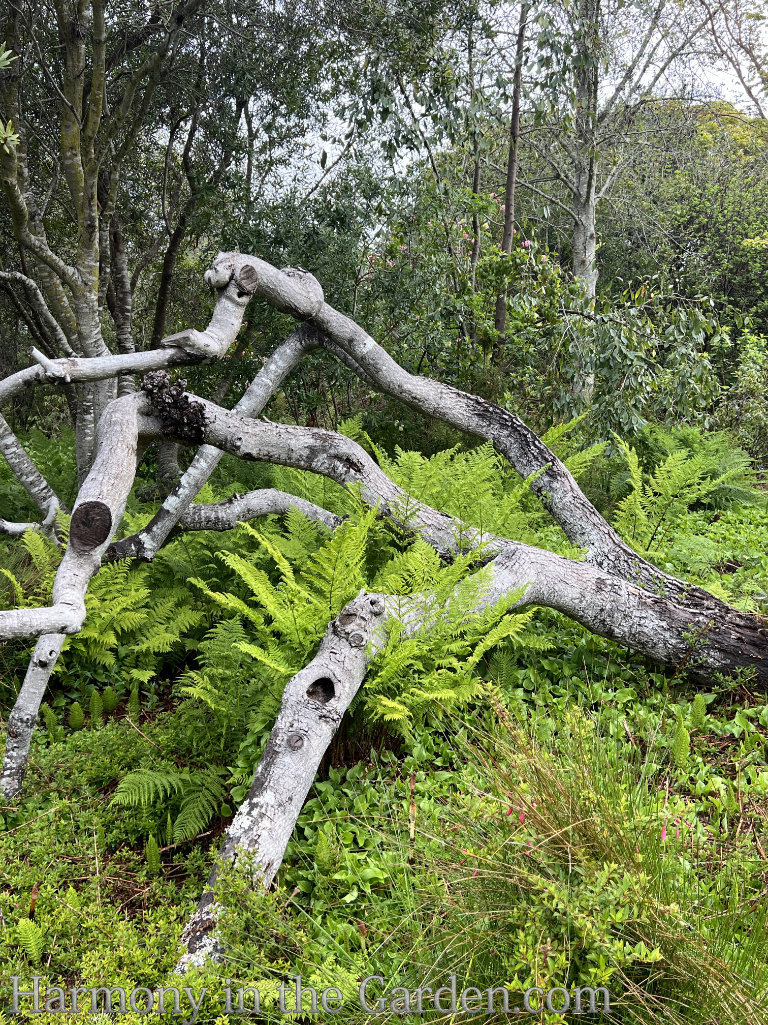
While visiting the Mendocino Botanical Garden earlier this year, I really appreciated how they used fallen trees as sculptural art, letting ferns and mosses grow in and around them.
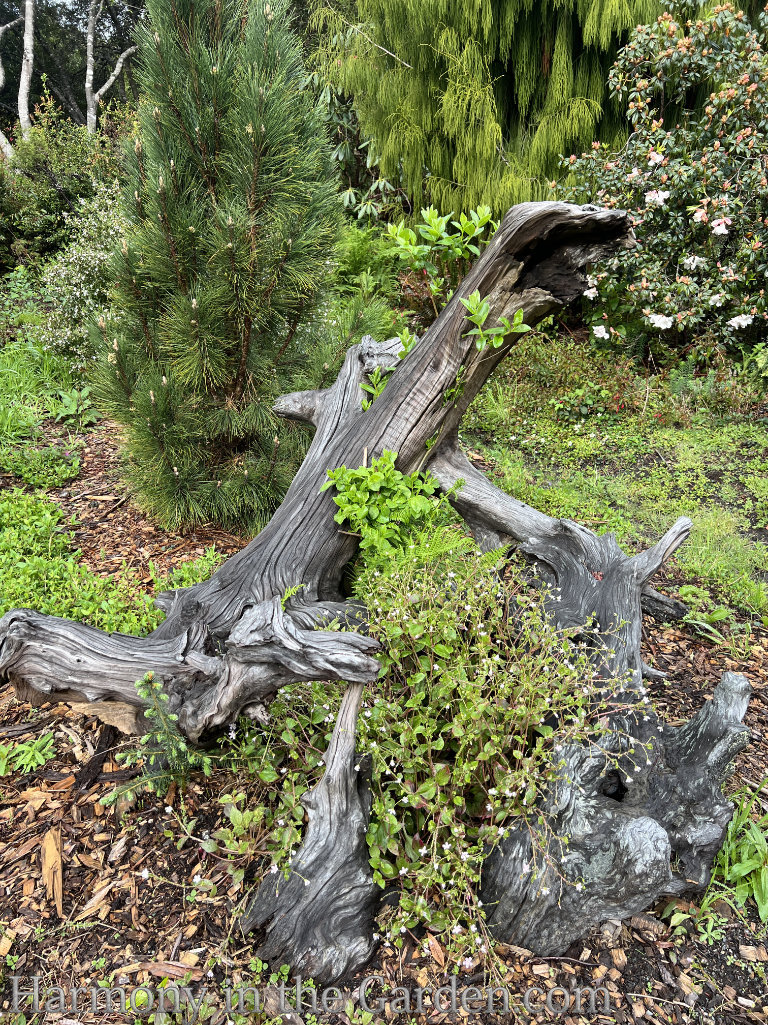
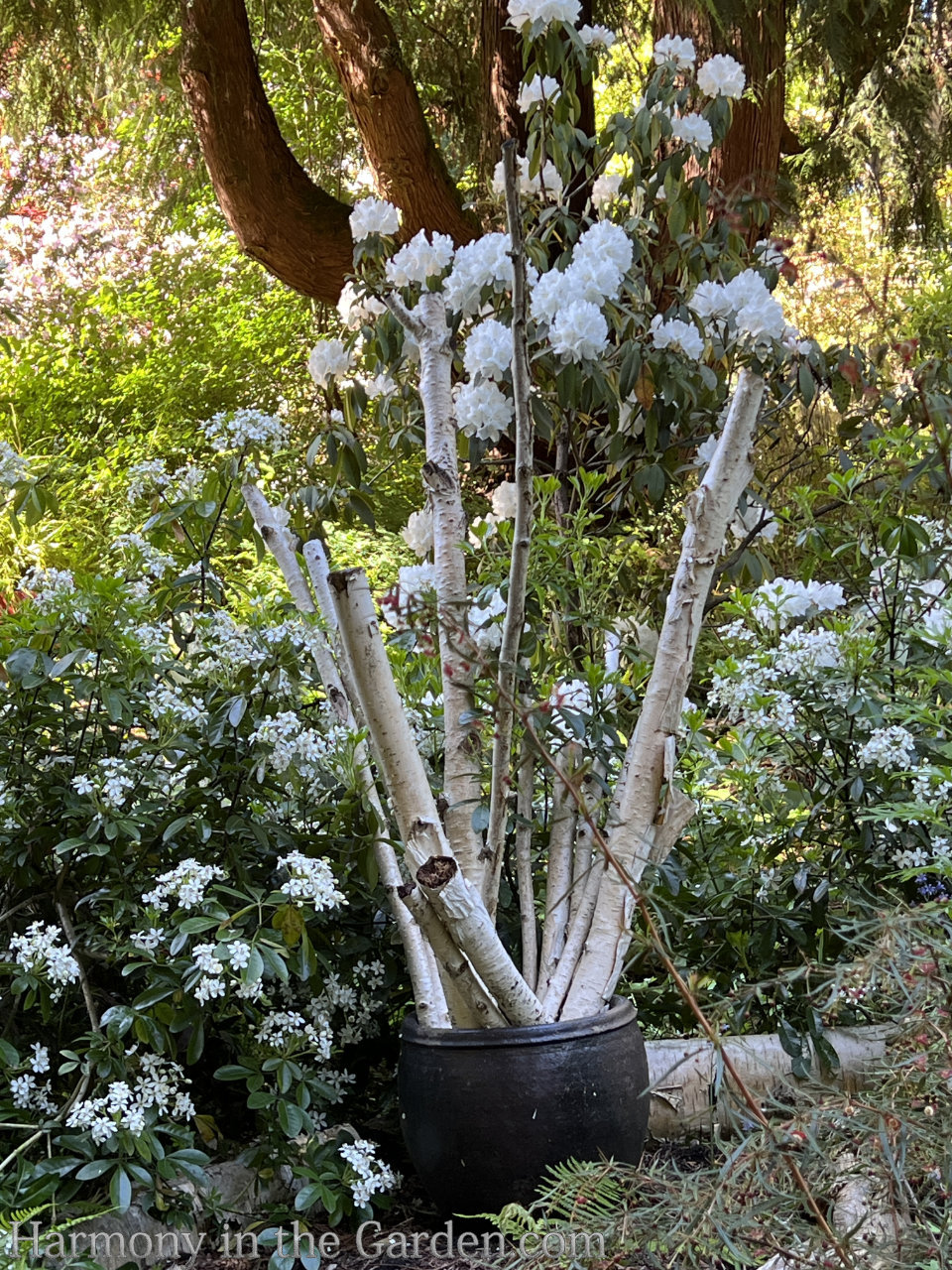
While speaking at Washington’s Bellevue Botanical Garden, I was treated to tour of Denise Lane’s unbelievable garden.
She’s another gardener who clearly values the intrinsic beauty of dead trees and branches, using them throughout her expansive garden. Whether placed on their side, or in decorative containers, a simple grouping of tree branches add vertical (or horizontal) interest to garden beds.
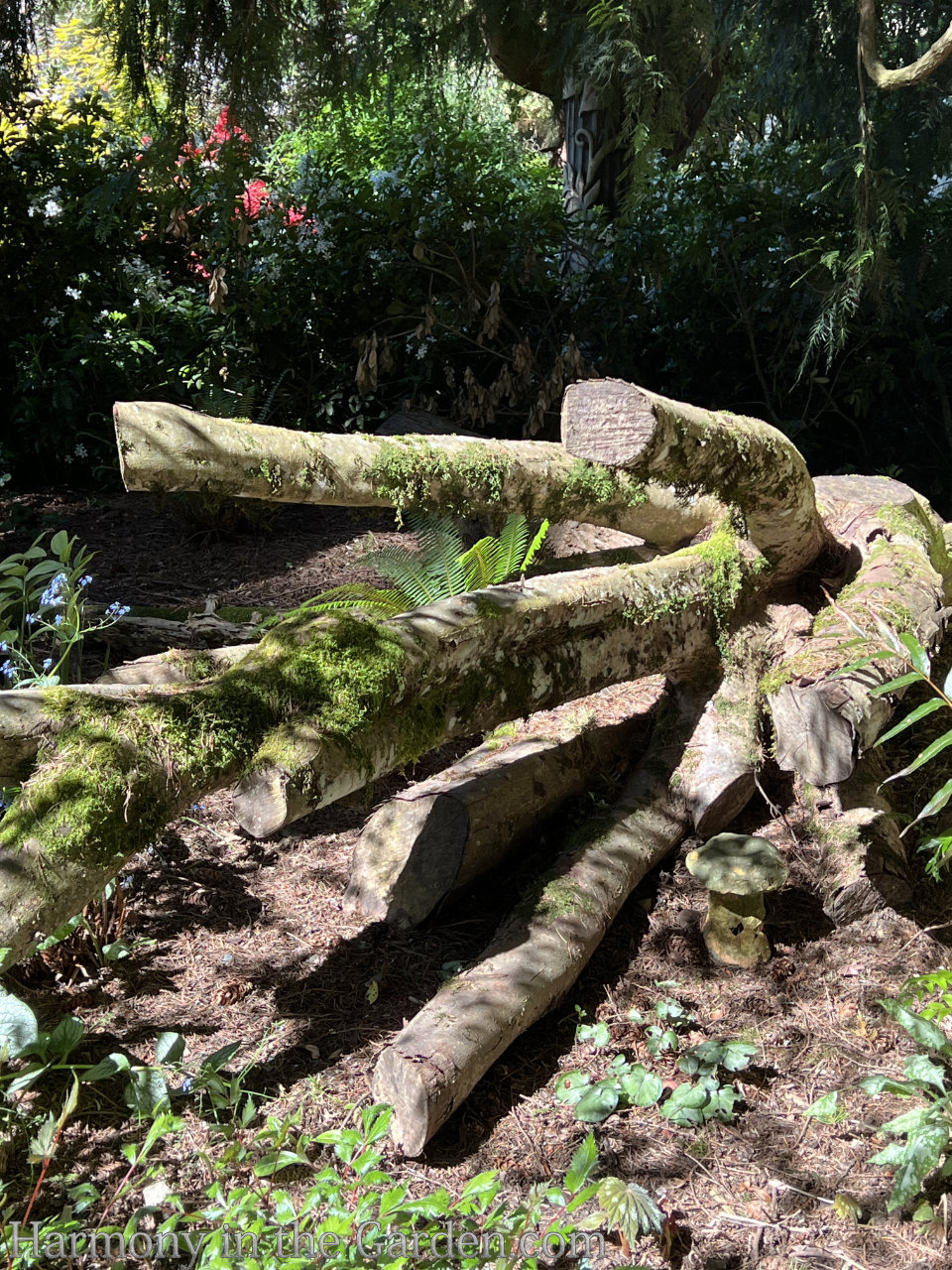
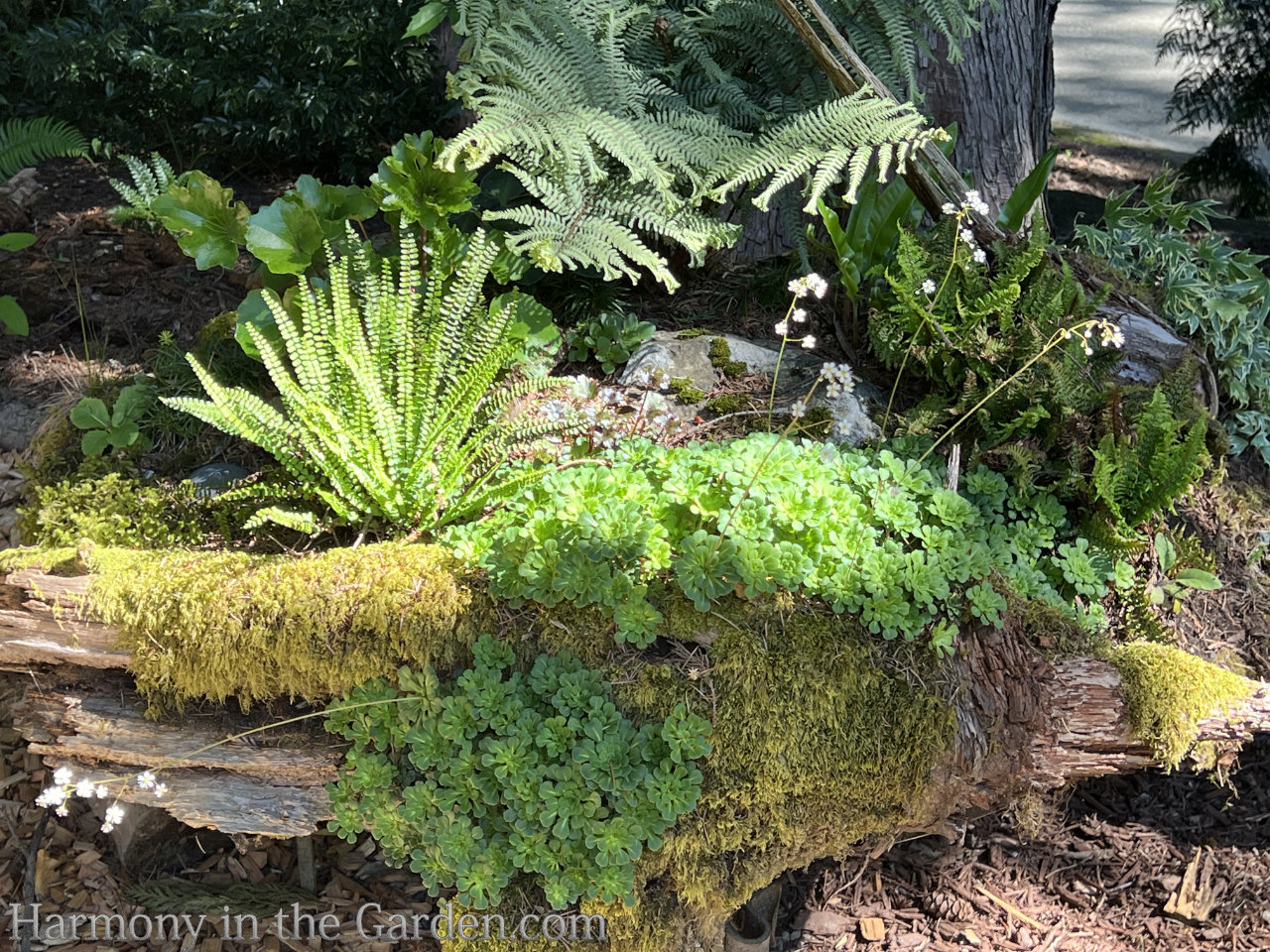
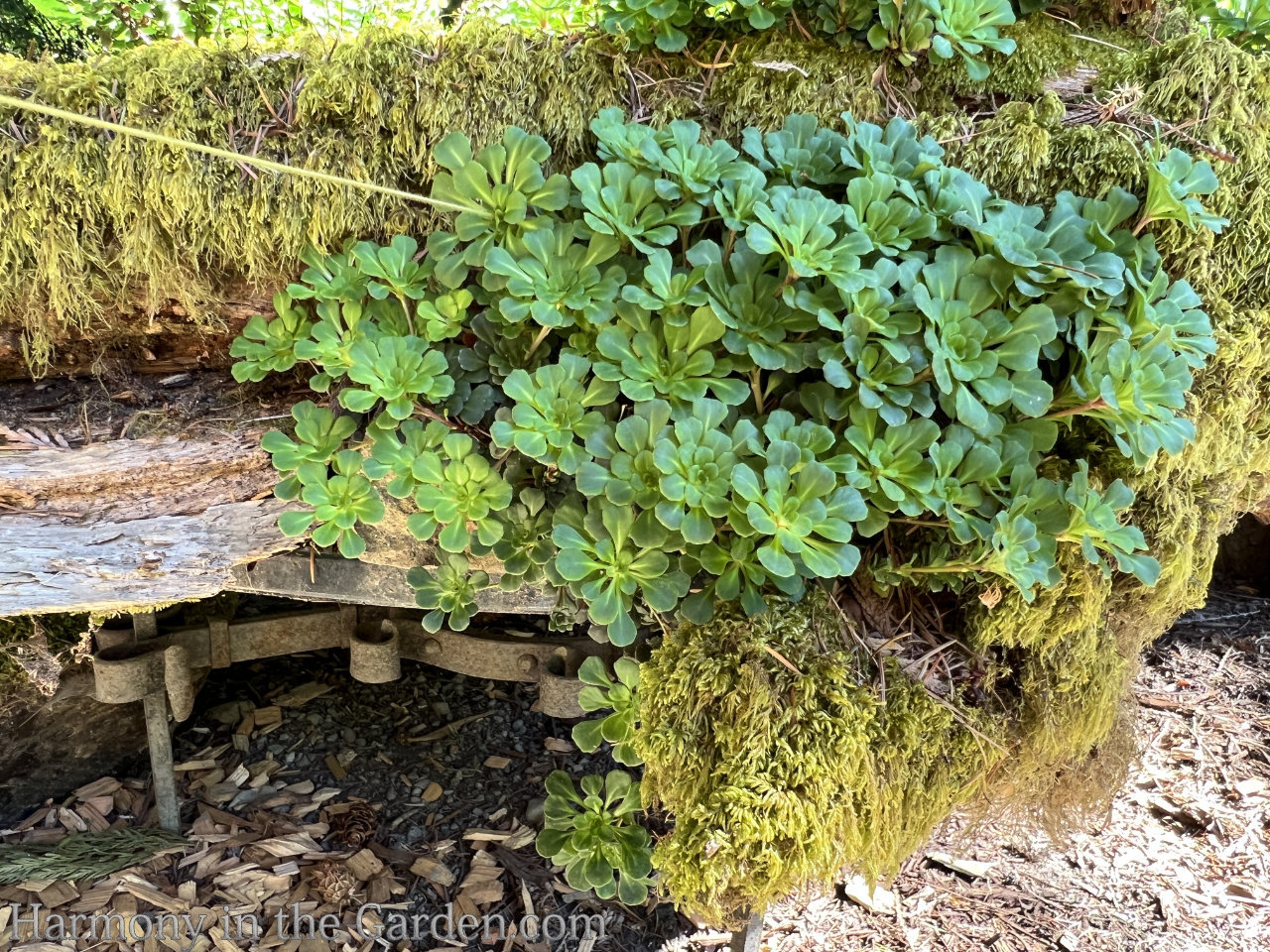
4. Use branches to give your garden personality
Several years ago my mother’s ornamental cherry tree died and what did she do? She made these two plant stands for me to flank either side of my office door! Click here to read more about this very meaningful gift.
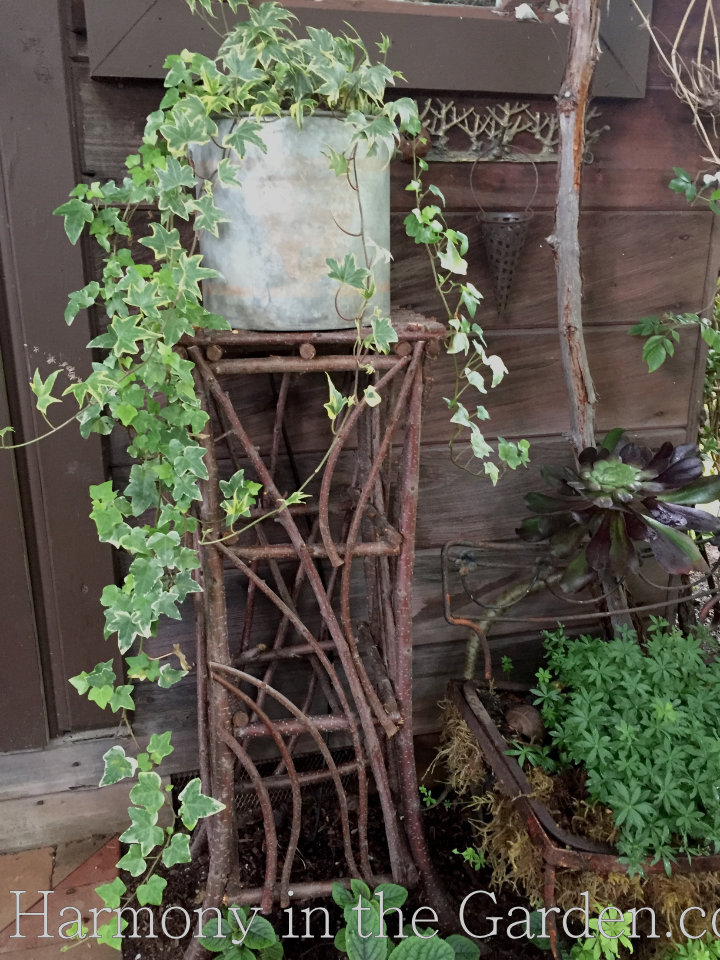
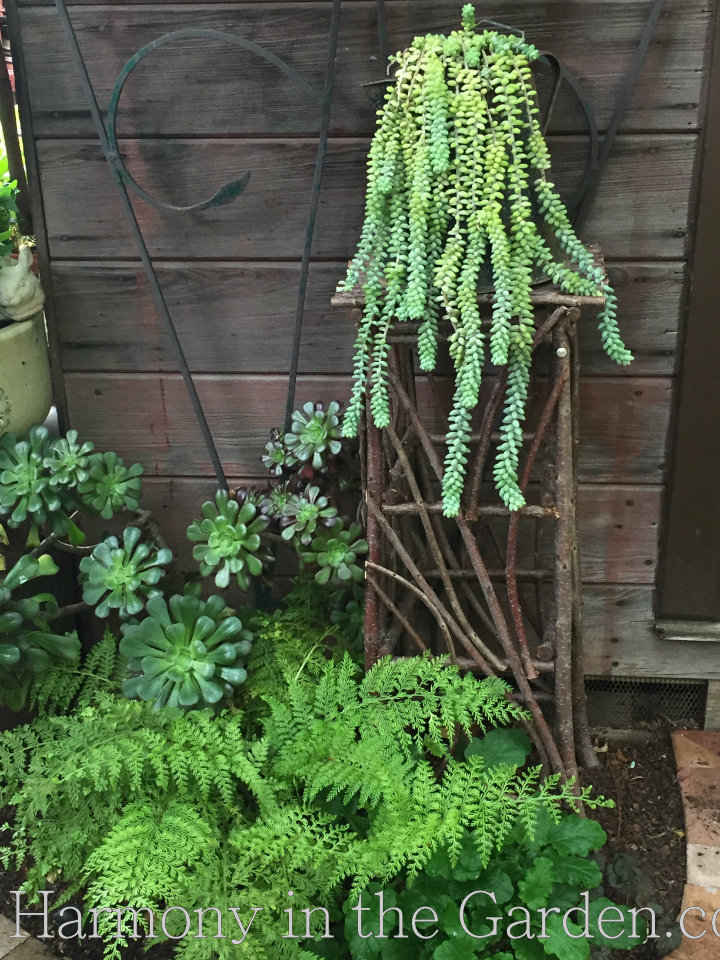
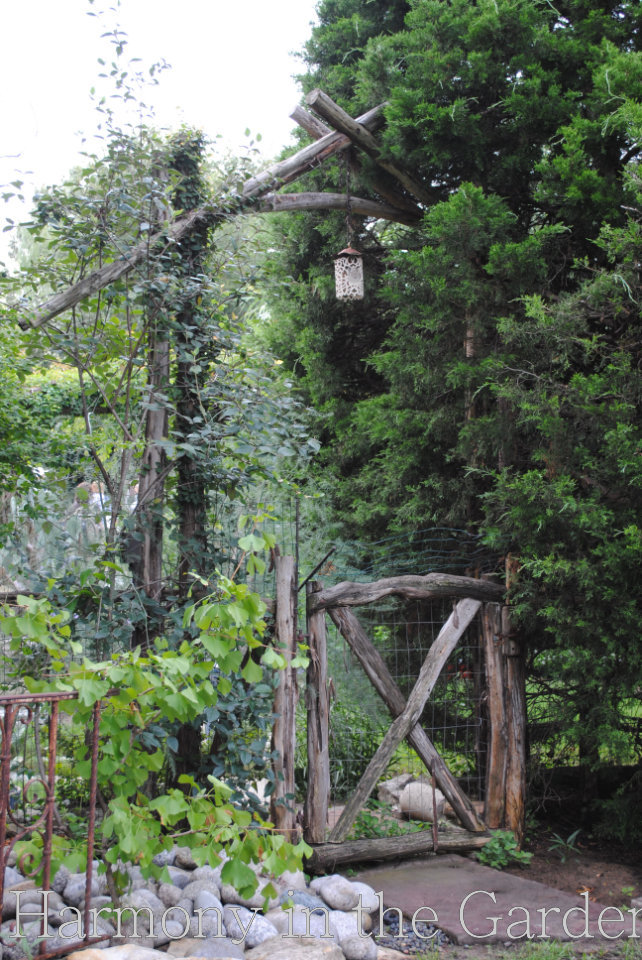
While visiting the amazing, artistic garden of Robert Bellamy, I fell in love with the simple garden gate and trellis he created from the branches of a tree.
You can read more about my visit here.
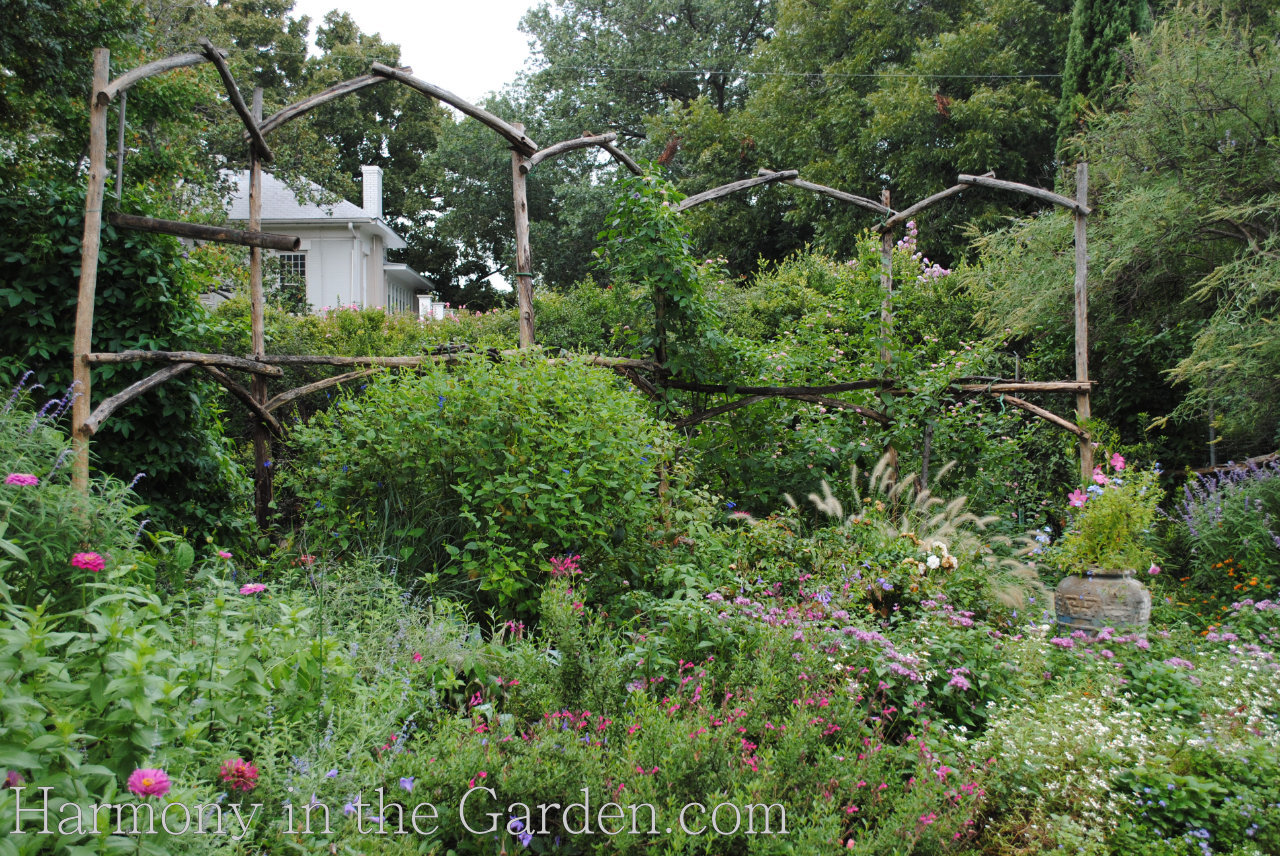
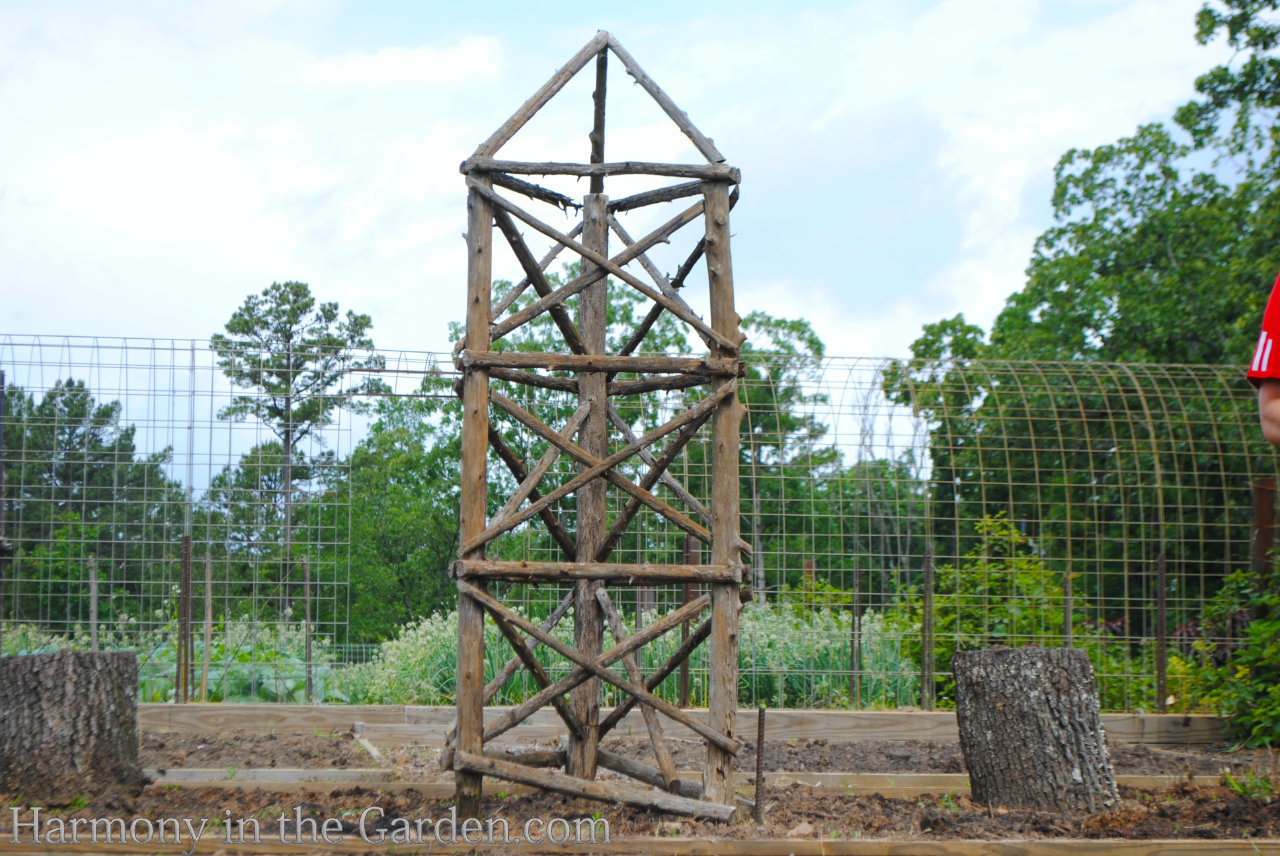
Again, take a look at the creative genius of P. Allen Smith and how he used tree branches to decorate this arbor, welcoming guests to his downtown home (left, and below.)
Or how he turned simple branches into a sturdy tuteur for this climbing rose.
Know the difference between a tuteur, obelisk, and trellis? If not, click here.
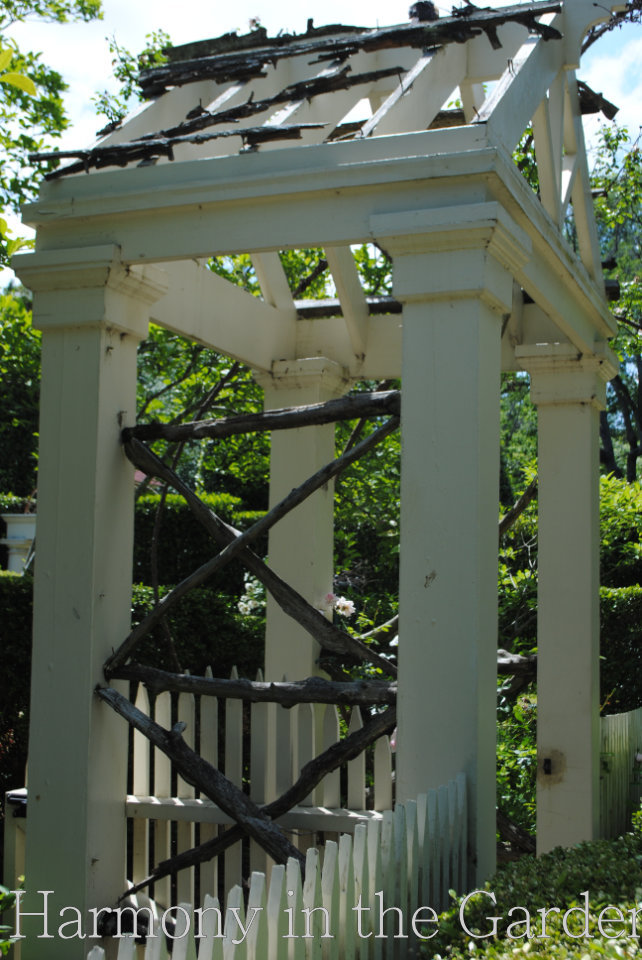
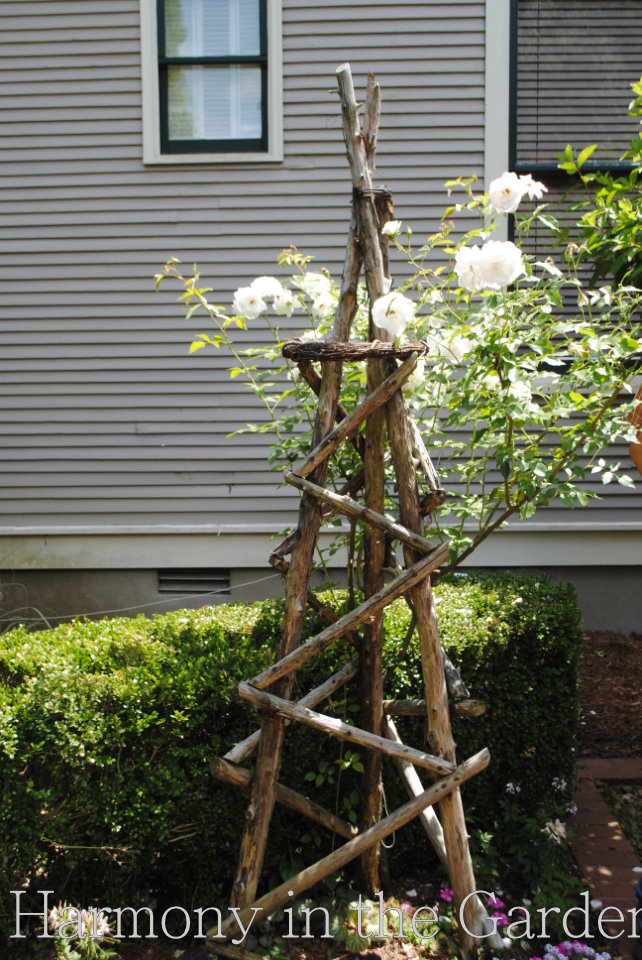
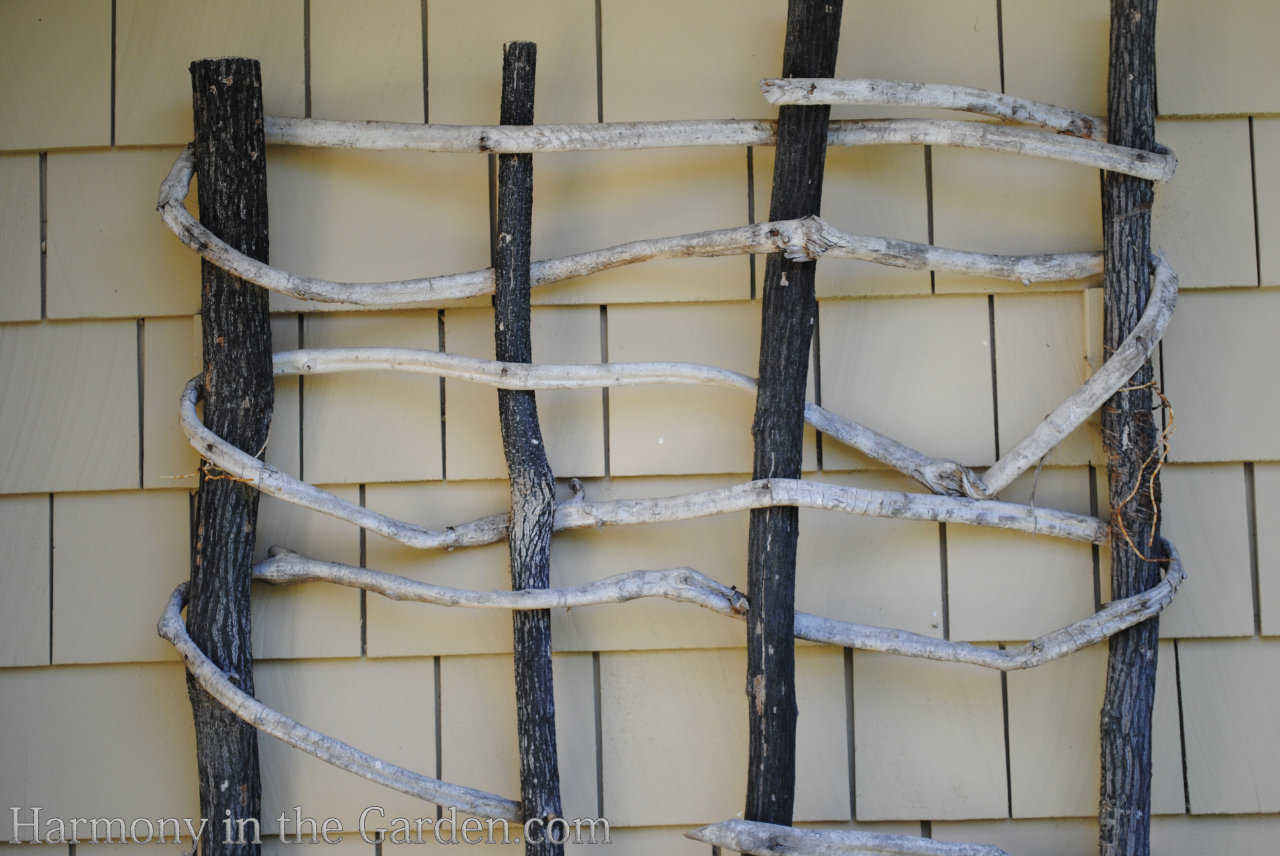
This simple trellis was spotted in my brother’s garden.
It’s made from dead tree branches and some sort of thick vine that was wound around while still green.
Perhaps a grape vine? I’m not sure, but whatever it is, I love it!

Just last week, while vacationing at Lake Tahoe, I walked by this simple fence the homeowner had decorated with tree branches.
While it may not last long with Tahoe’s heavy snows, it blends in beautifully with the surrounding forest.
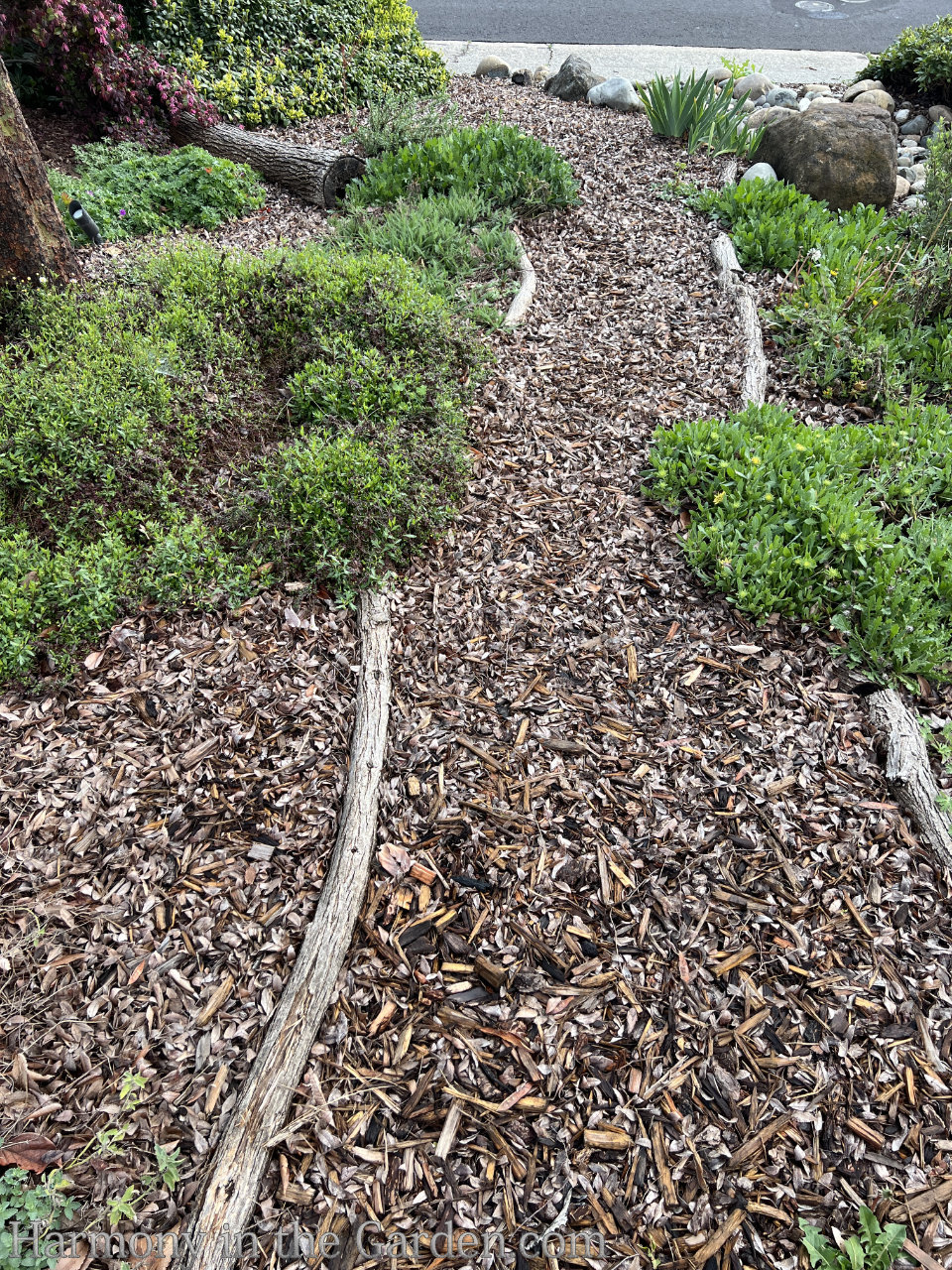
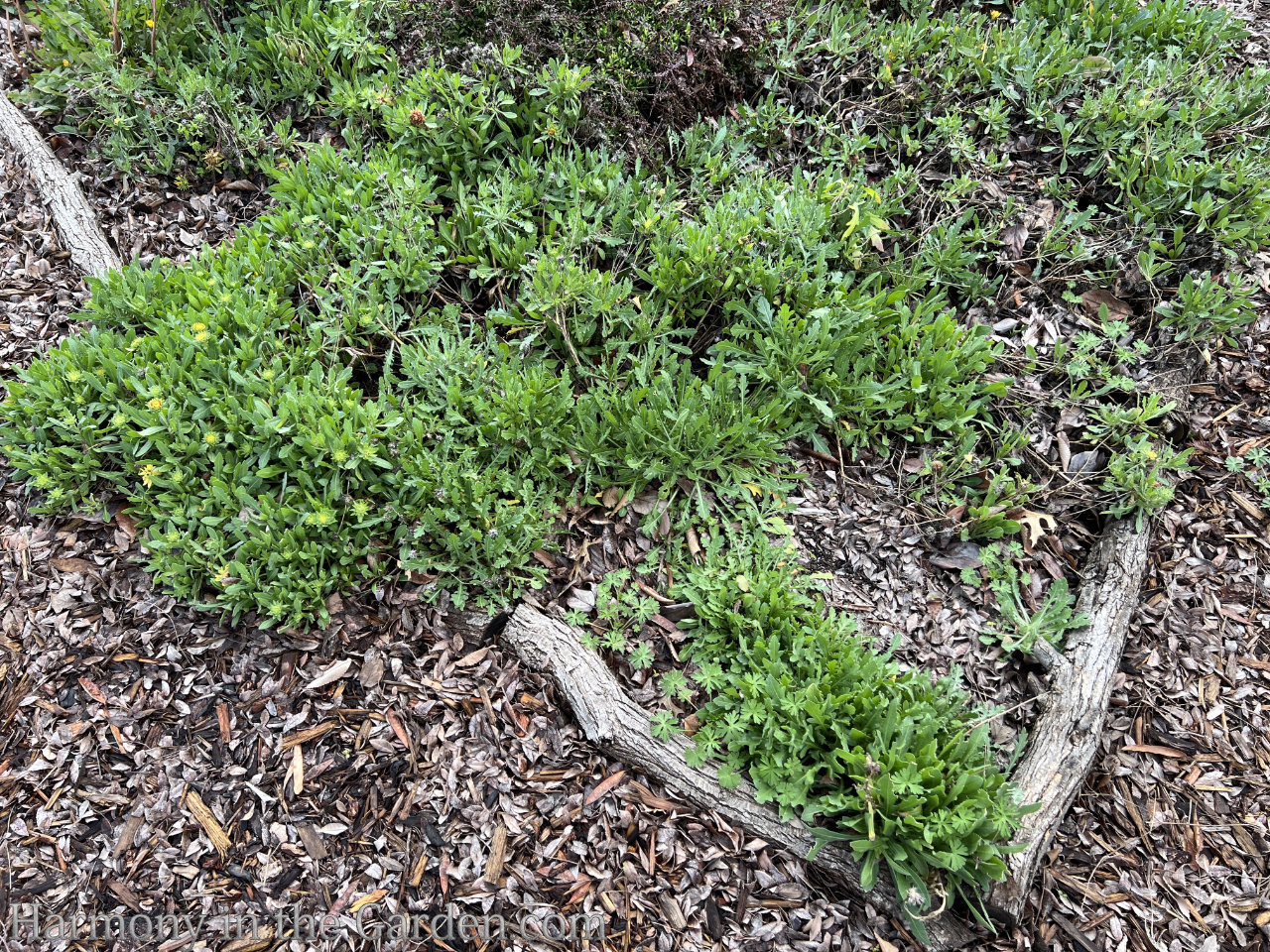
While on a garden consultation, I spotted this sweet pathway the homeowner made using skinny branches from a fallen tree.
It’s such a clean, natural look in the garden, isn’t it?
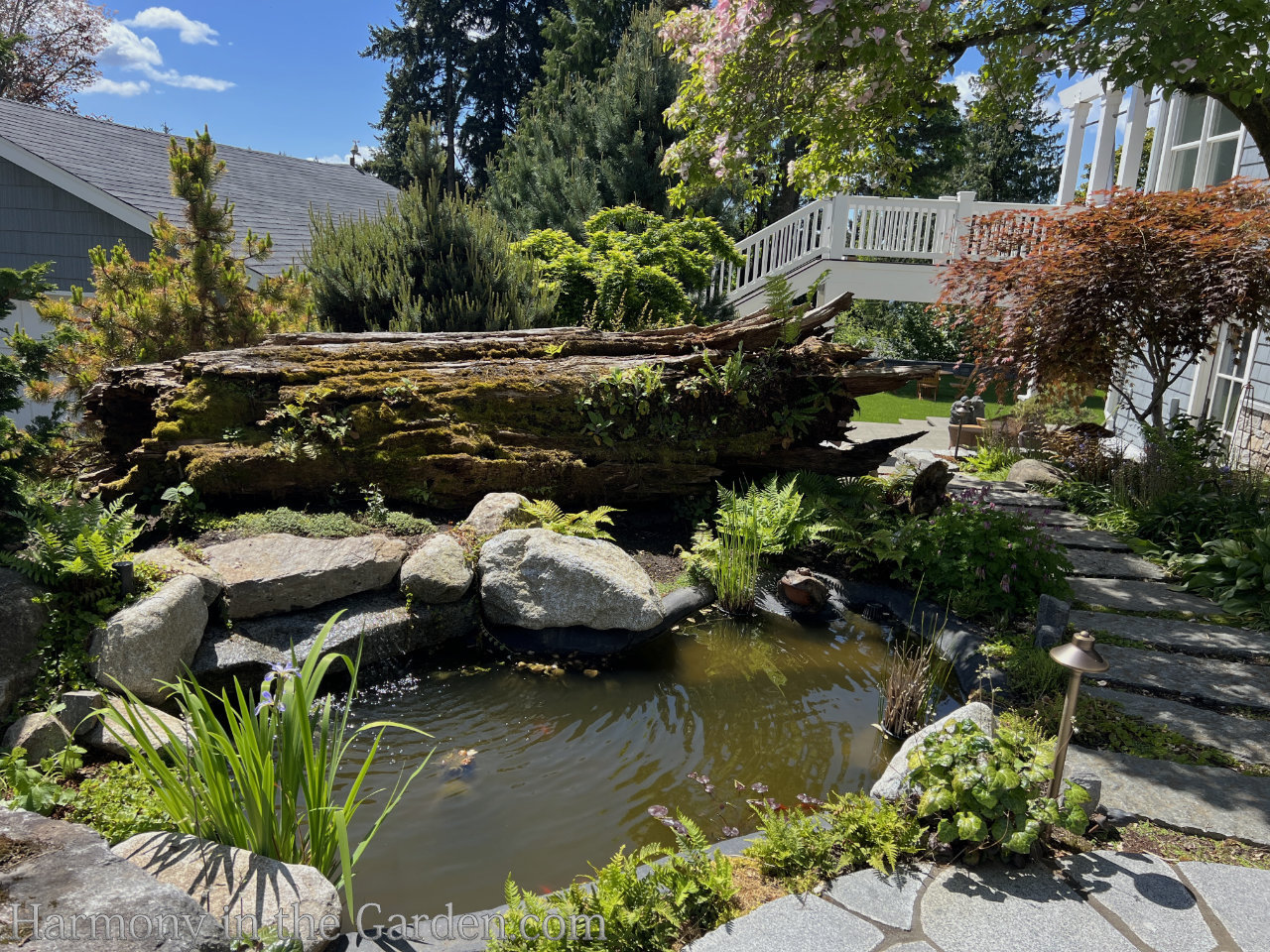
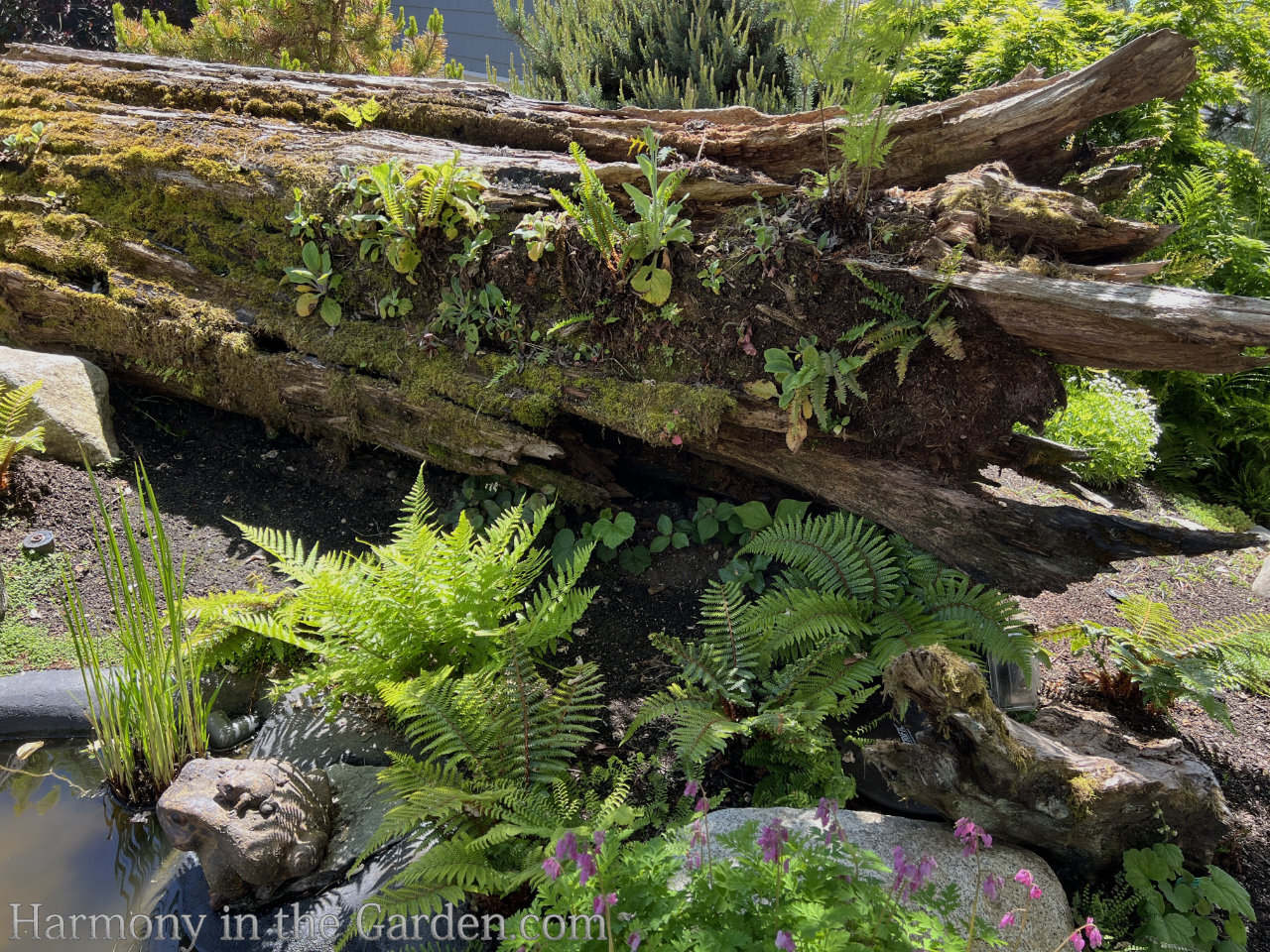
While visiting Bellevue, I visited another spectacular garden where the homeowner (whose last name is Root, no less!) lets the beauty of a fallen tree act as a centerpiece in the garden.
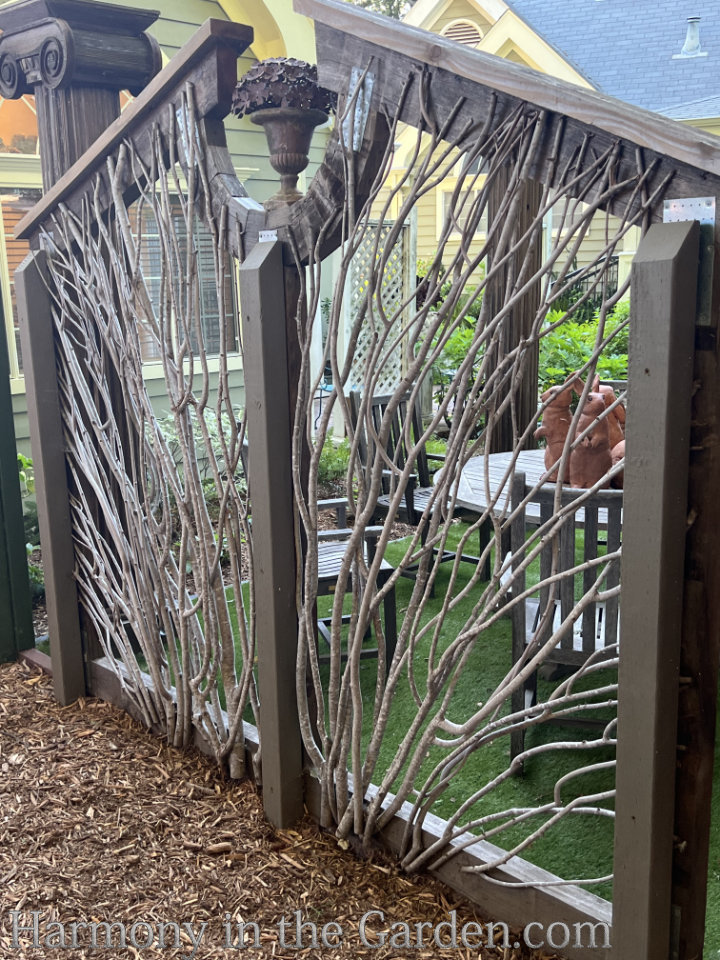
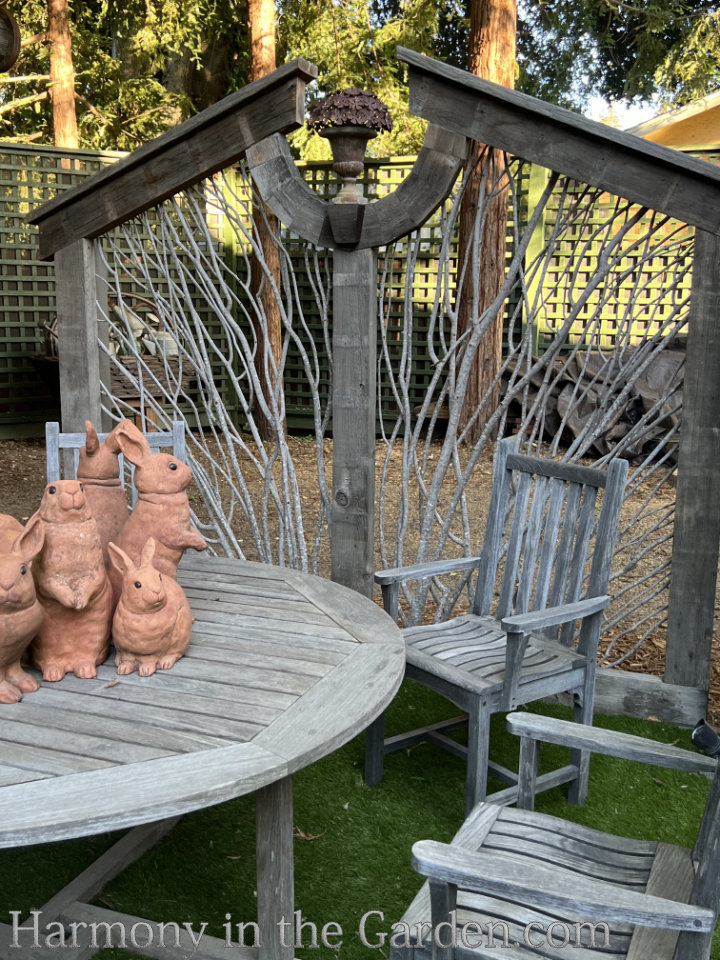
How’s this for clever!
Freeland Tanner created this semi-private screen using twigs and branches.
Click here for more of this inspiring garden.
5. Think BIG with branches
Of course, if you were really creative you could always create a magnificent summer home, decorated with tree trunks and branches, like those at Lake Tahoe’s historic Valhalla Estate.
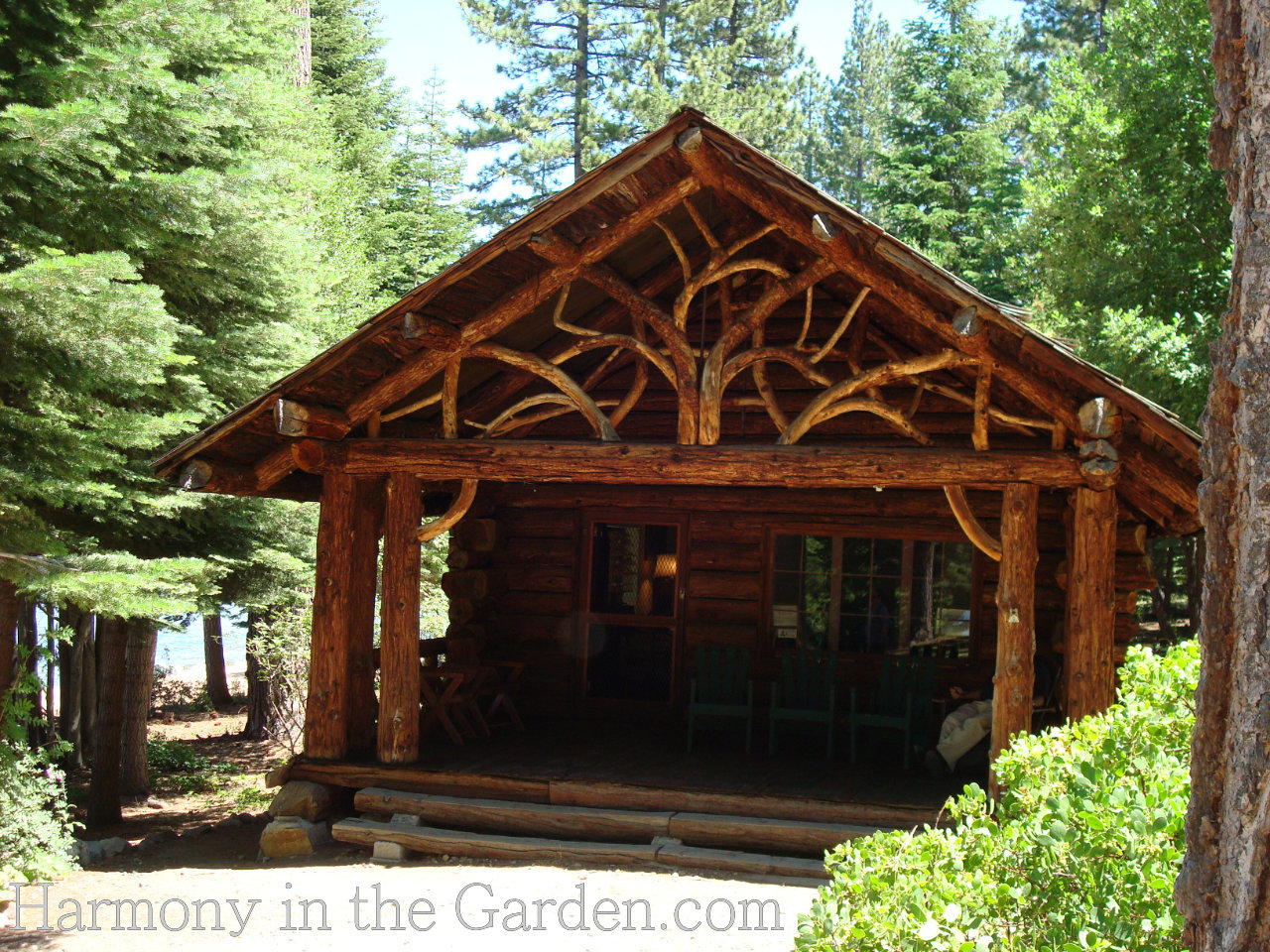
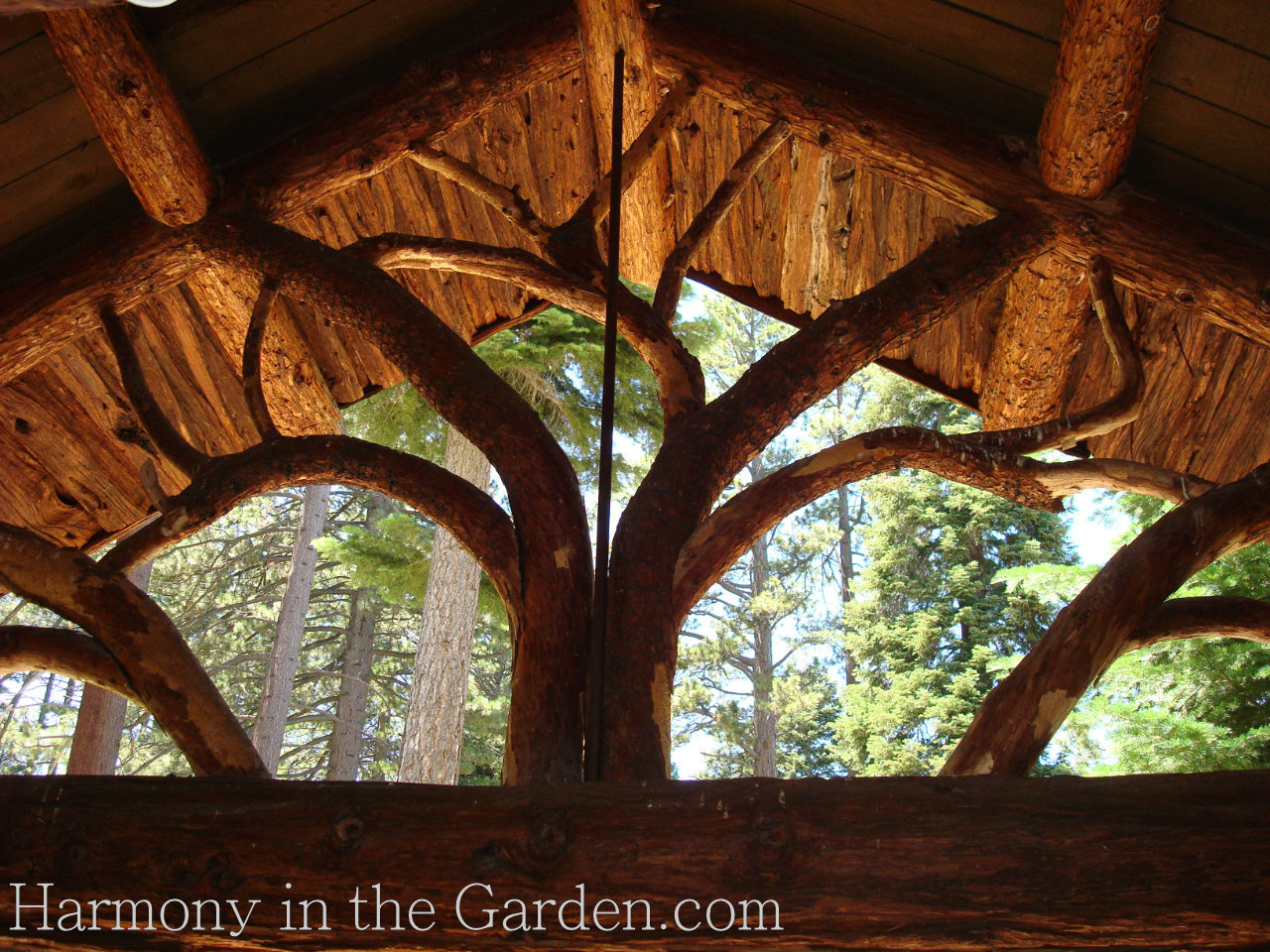

Which is exactly what Freeland Tanner made for his wife, Sabrina!
Click here for more images and t0 read about one of the most touching displays of love ever.
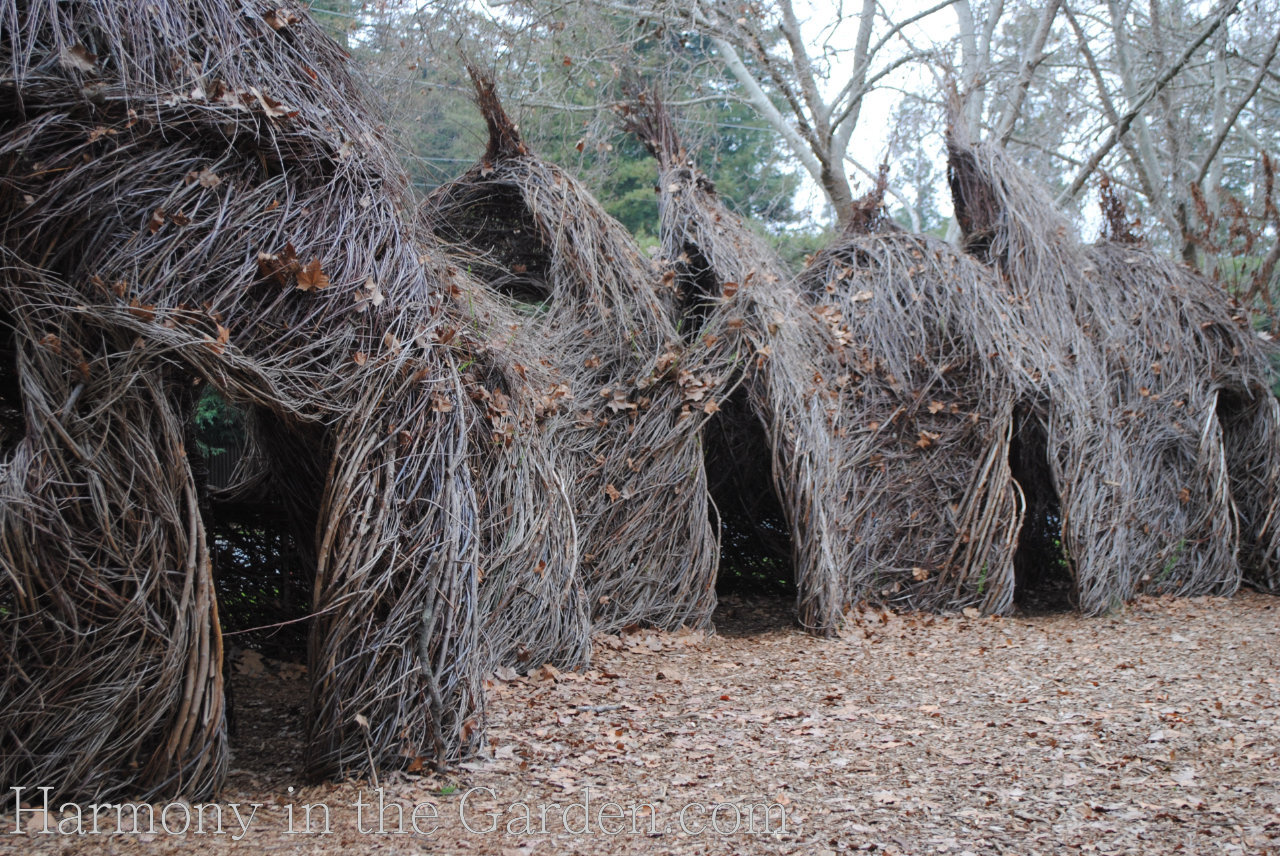
I was lucky enough to visit one of Patrick Dougherty’s installations in Palo Alto, and since then I’ve been a HUGE fan of his.
Creating works of art from twigs and branches takes on a whole new meaning – take a look at his website and video about his work. It’s fascinating!
6. Transform the Trunk
Just a few weeks ago I stumbled upon the sweetest community garden where somebody used a decaying tree trunk as a planter. Tucked in here and there were ferns, ribes, and other woodland plants.
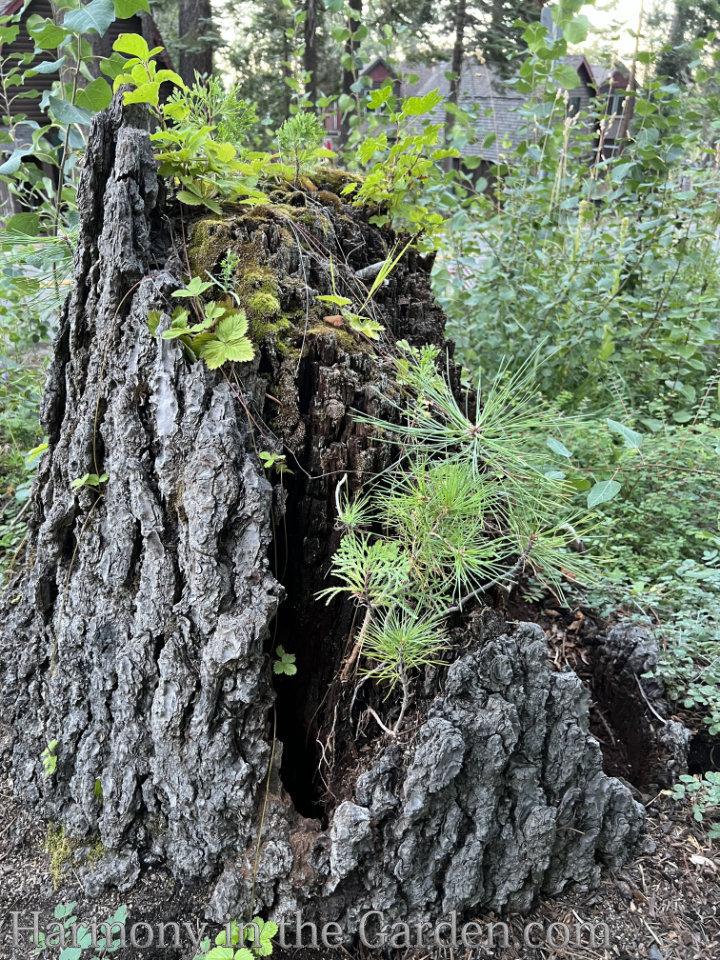
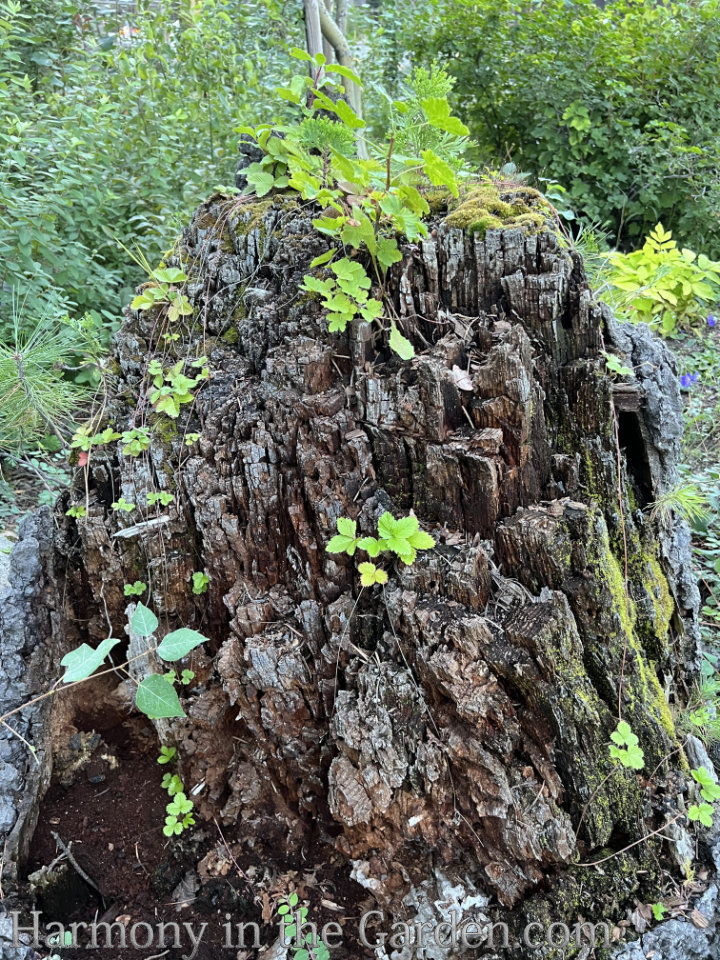
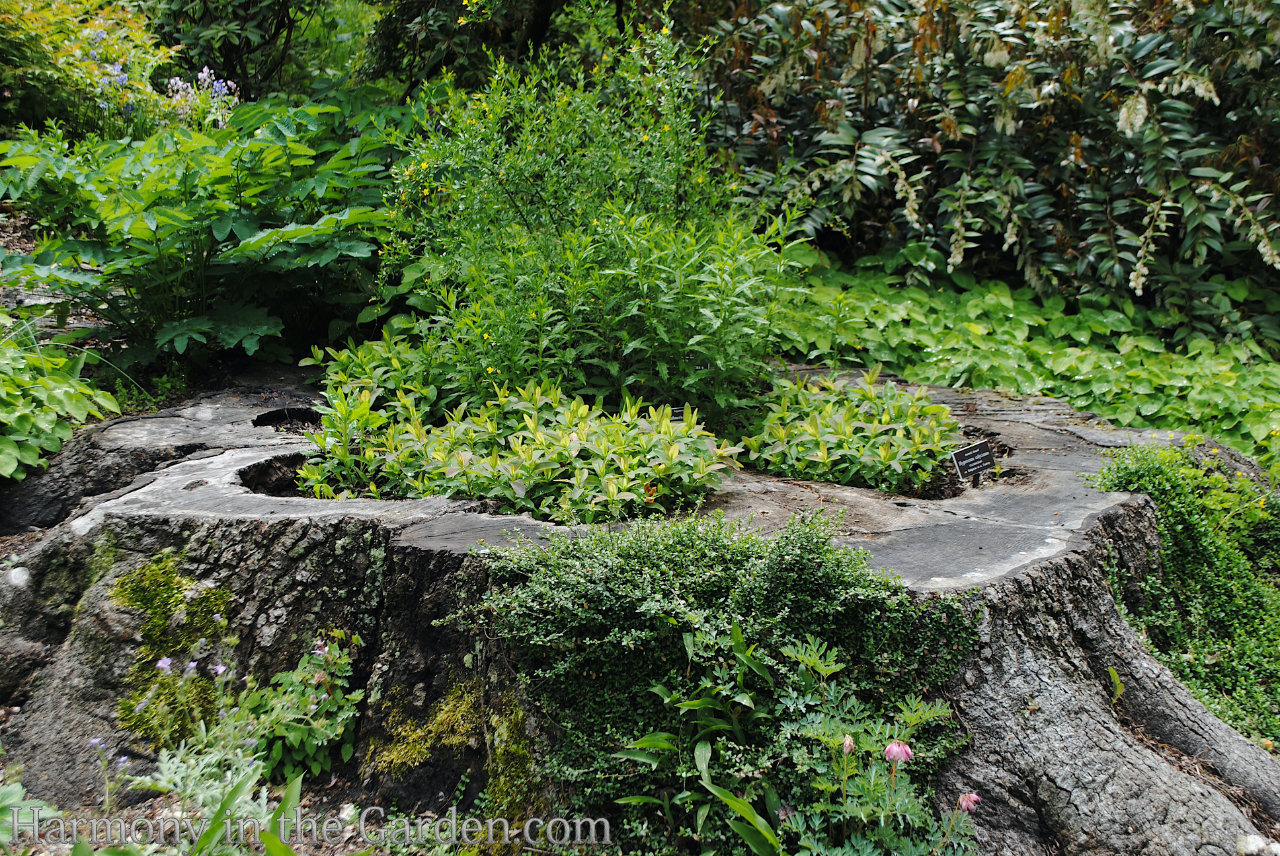

And finally, here’s a very old tree trunk that’s been a part of my life since I was a little girl.
Located in our Lake Tahoe garden, it’s home to my grandfather’s simple home-made birdhouse, a variety of squirrels, and chipmunks.
While I hope none of you ever have to deal with the loss of a cherished tree in your own garden, chances are pretty high it’s bound to happen at some point.
And when it does, hopefully I’ve shown you a few inspirational ideas that you can use to help lessen the pain!
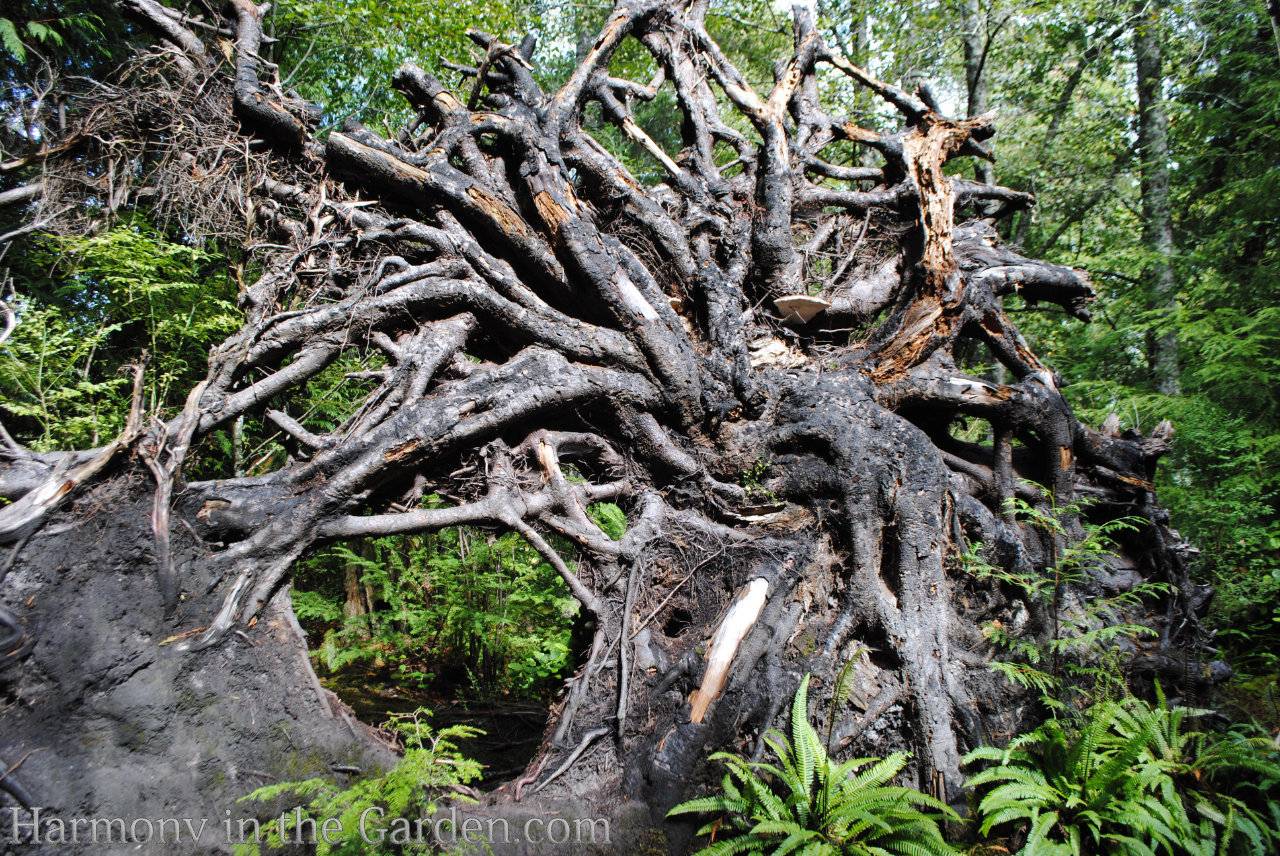



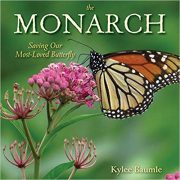


18 Comments
Just am losing a favorite 40+ year old birch tree. Neighbors trees are dying also. Can I just leave it and not have to worry about the roots dying also and the tree perhaps falling? I like the idea of vines growing up the tree, perhaps clemantis. Any thoughts??
Hi Elaine, I’m sorry you’ve lost such a wonderful, mature tree but alas my recommendation is to remove it as it will definitely fall at some point. The roots are dead/dying so they can’t support the tree’s structure and weight. Several of the photos in this post show other dead trees where the trunk was cut off around the 5-6′ level and a birdhouse or other ornamental structure is placed on top – this way, if the tree does decide to topple in a storm, the damage would be minimal. I had a huge birch tree which died and used the long, white branches for various garden projects (even sticking a few thinner branches in an urn is beautiful) – that might be a good way for you to keep your tree around for a few more years?
Would love to know how one cares for the tree branches – does one have to put something specific on them ??
I’m so new and I would love love to use dead trees to honor them this way
Hi Kari – I don’t know what others do, but I just leave mine as is to slowly deteriorate in place (if in the garden) or to somewhat protect it, if covered on a porch or patio. When covered, mine have lasted for decades. Good luck!
What about planting climbing vines, i.e. Silver Lace Vine or other evergreen vine,s at the base of the tree to let it just climb up and cascade down? Would that work in a dead cherry tree?
Hi Pam, that’s a fantastic idea (and so simple!) I’m not sure what your climate is, but another evergreen vine you might consider is the clematis cirrhosa ‘Wisley Crème’ or clematis ‘Avalanche.’ They’re some of my favorites and yes, they’re evergreen (the ‘Wisley Creme even blooms in the late winter!” I’ve written about them in this post (scroll half way down) https://harmonyinthegarden.com/2021/05/landscaping-for-privacy/
Thanks for the hope of using our toppled 100+ year snow apple tree it was our touchstone for more tha 3 generations on my wife’s grate grandfathers farm which we now care for. We were heartbroken when she was toppled by high winds.
I’m so sorry for the loss of your tree. It’s so hard when a tree that meaningful to a family’s history is lost. I hope you find a creative way to use parts of it in your garden and would love to see what you come up with!
I want to recycle some dead branches by using them in an indoor arrangement. But I’m not sure if taking them indoors is okay, since the prettiest ones are covered in green moss. I wonder if there’s a way to clean them without removing the colorful moss.
Hi Joanne, I don’t really know except for gentle cleaning, but maybe a reader has another suggestion for you – any thoughts, anyone?
This is absolute fabulous, peaceful and so inspiring. I always climbed a tree growing up to enjoy the world around me. This was a nice reminder.
Thank You !
I’m so glad you enjoyed it, Mary Ann. Thanks for stopping by! 🙂
Rebecca – I always enjoy your posts and often share them with my daughter in Santa Ynez Valley (a climate similar to yours with occasional fog). This was an inspiring take on usage of fallen trees & branches. I use a ground level huge root from my pepper tree as a break between lawn and garden. In this blog of yours, the wire fence at Lake Tahoe decorated with vertical tree branches of various heights reminds me of one at Deer Hollow Farm in Los Altos. Fences like that were used to keep deer out of gardens as they cannot judge uneven heights.
Thank you so much, Jackie! Oh, how I wish we had the occasional fog like your daughter has – we could use some now as it’s been SO hot! As I read your comment re: the fence at Deer Hollow Farm, I think I remember seeing one there years ago. What a fun flashback! I never thought of it as deterring deer – thanks for the insight!
When I see your post, I have to read it immediately. You are such an inspiration and I am so glad I found you.
Thanks so much, Judy, what a sweet thing to say! Hope you’re staying out of the smoke – it’s so bad today!
Rebecca, I love this post–and I re-read the one about your mom. So special and touching. Great way to start my day. Stay well. Thank you for sharing.
I’m so glad you enjoyed it, Gigi! xoxo